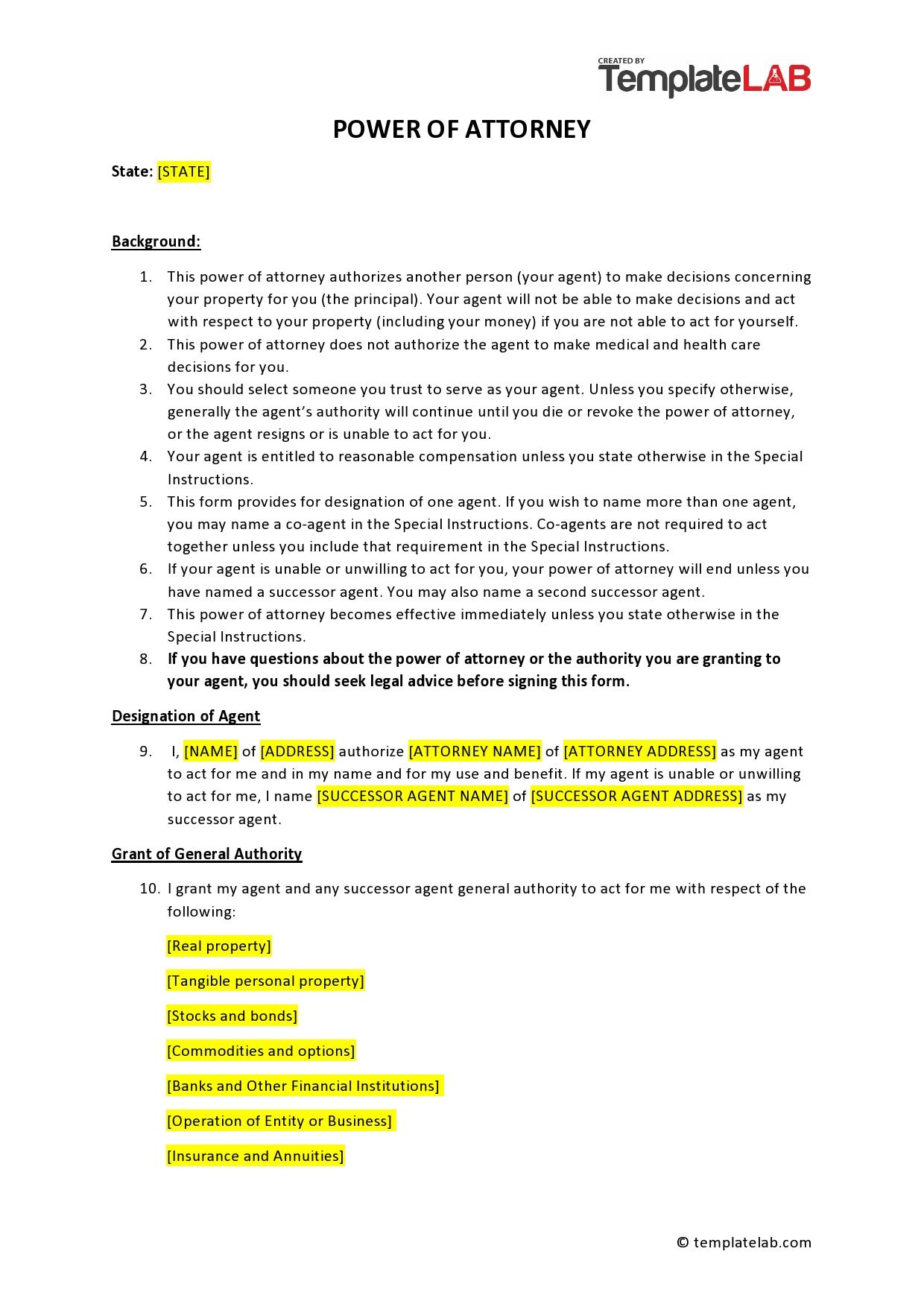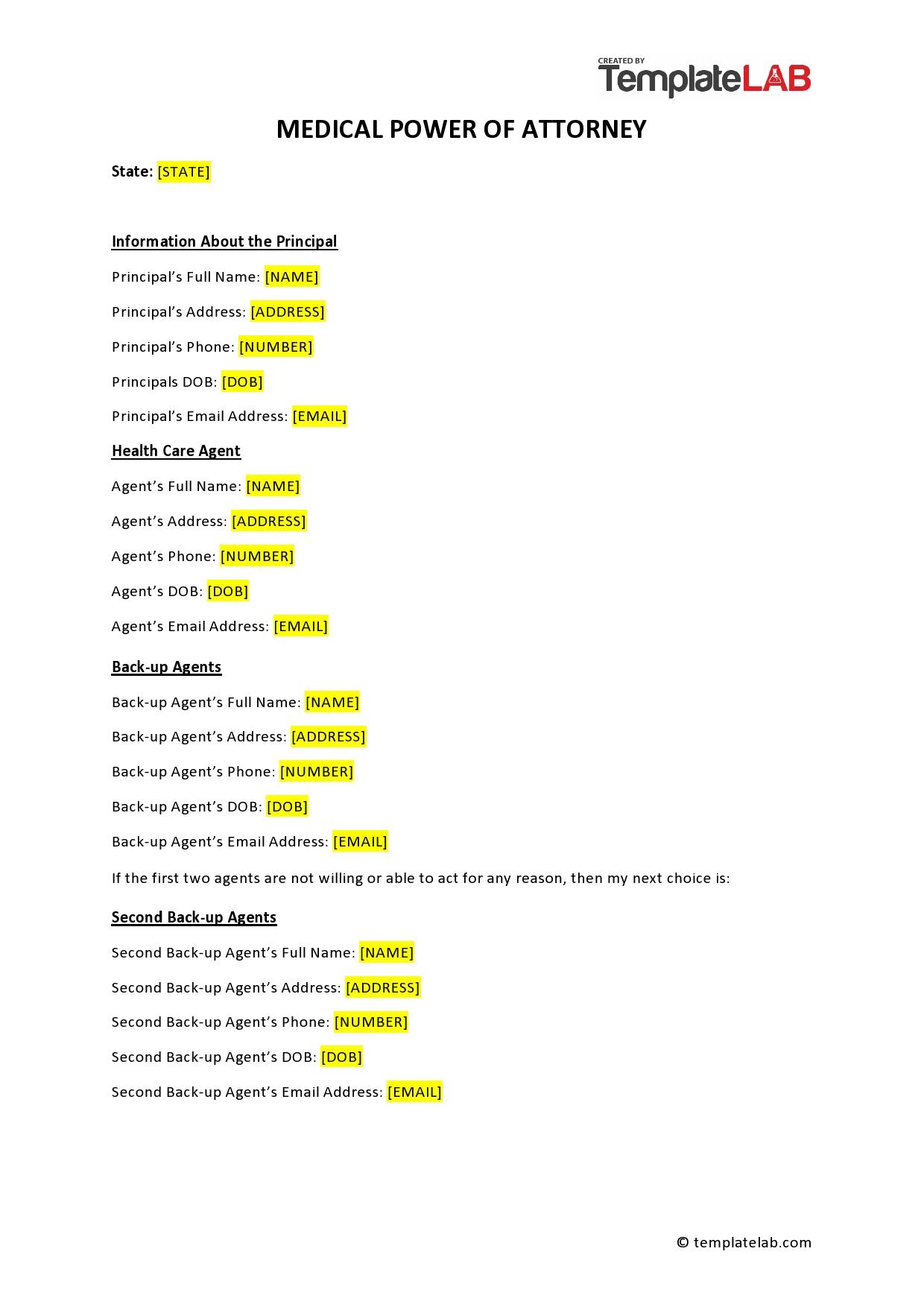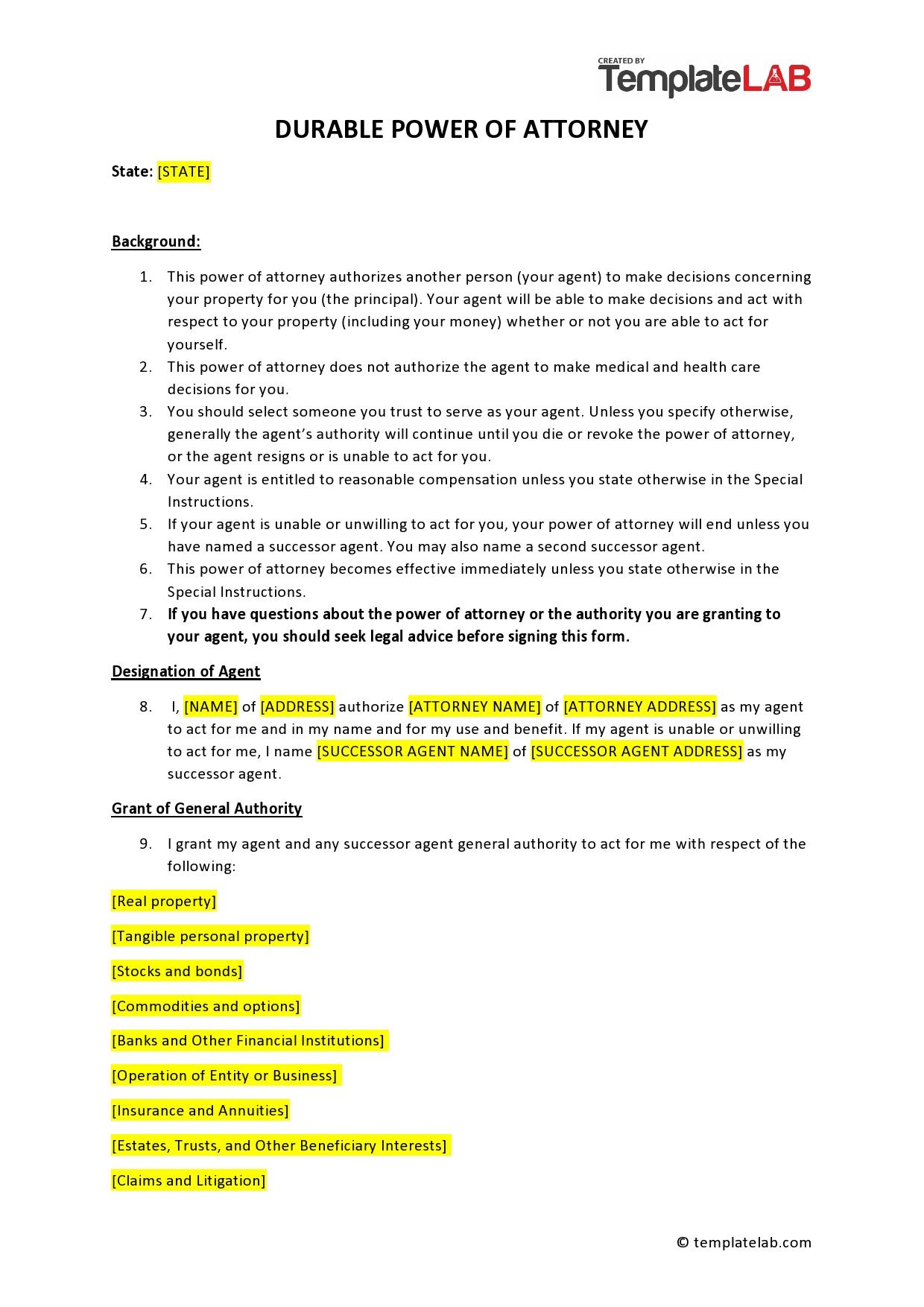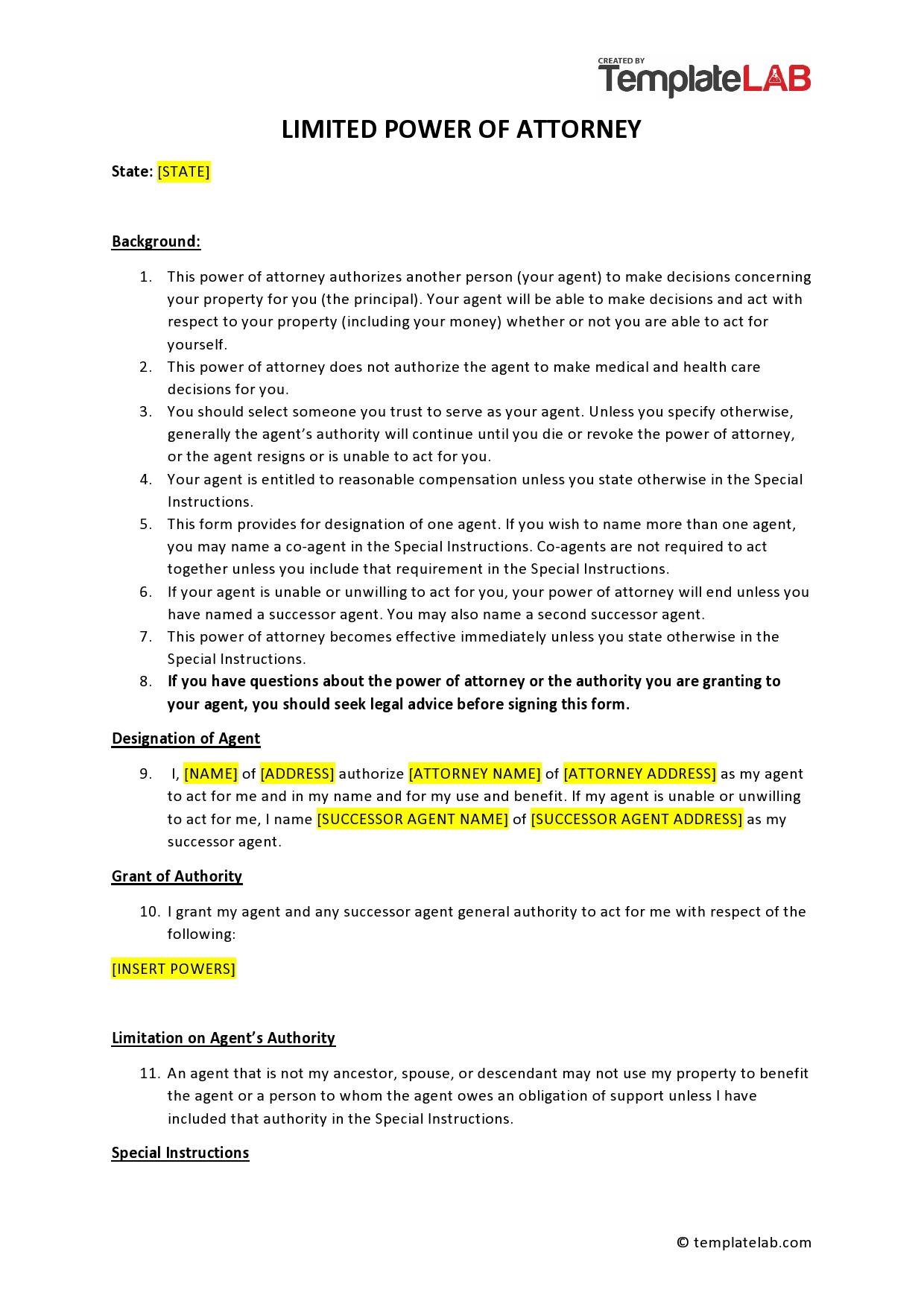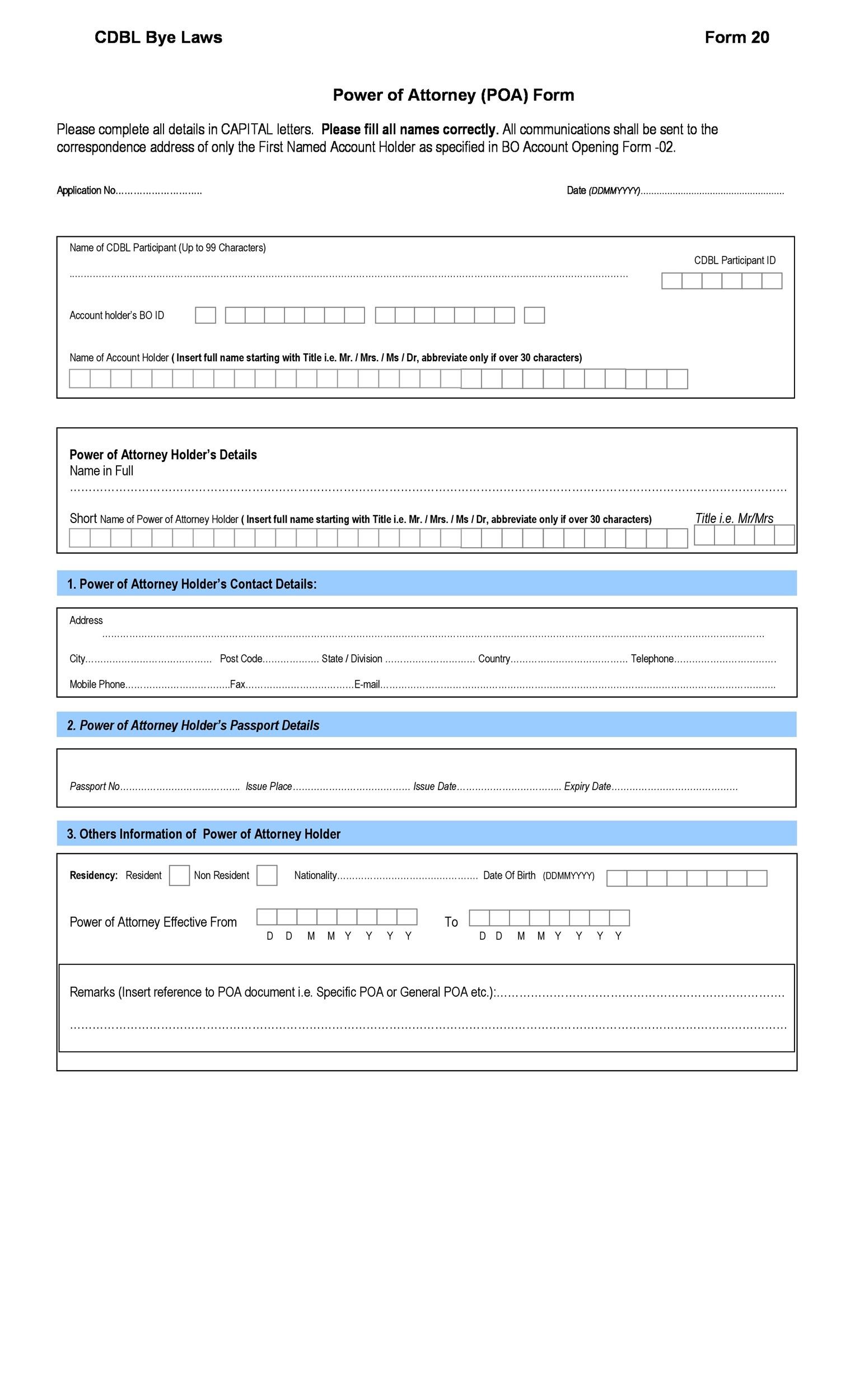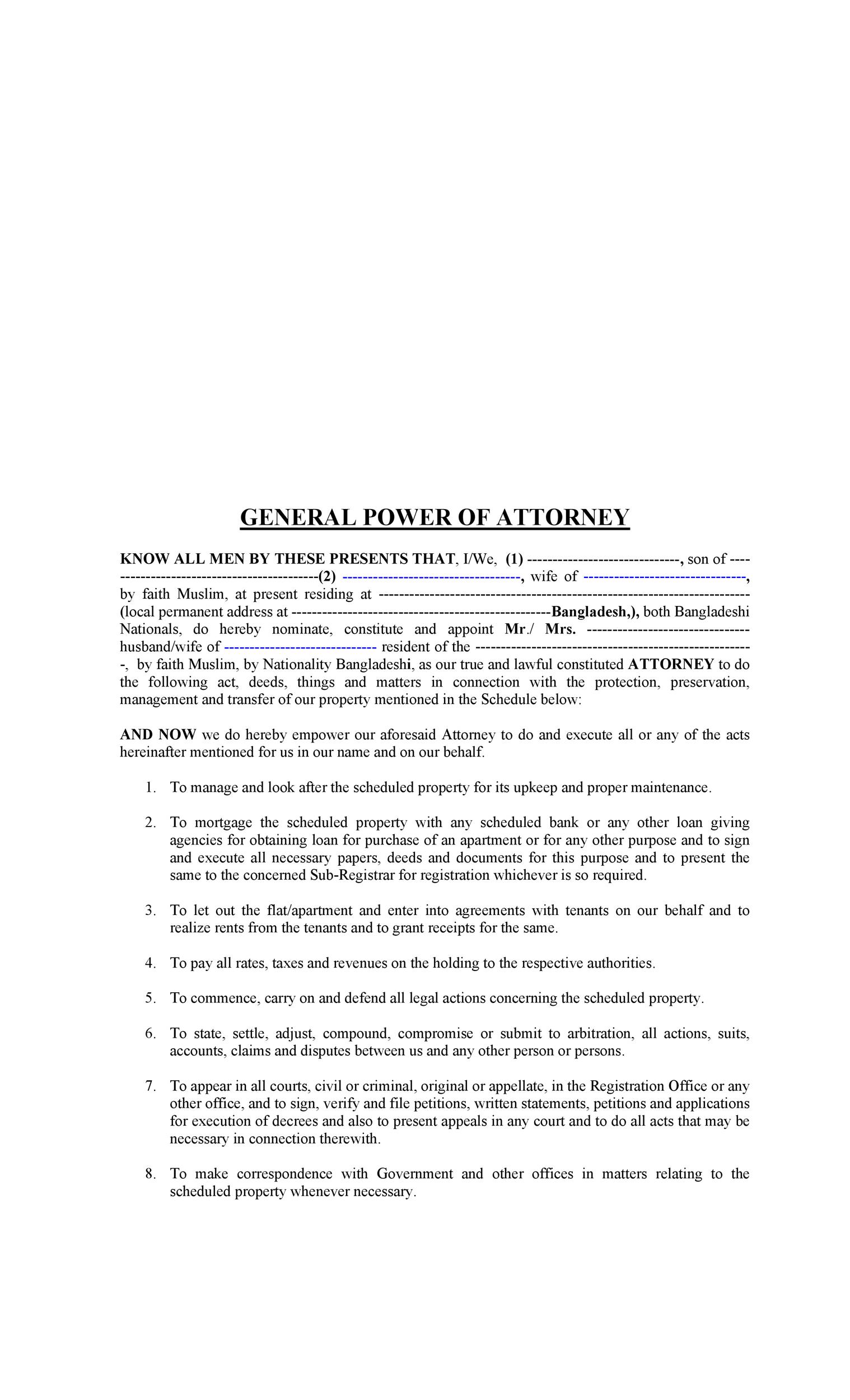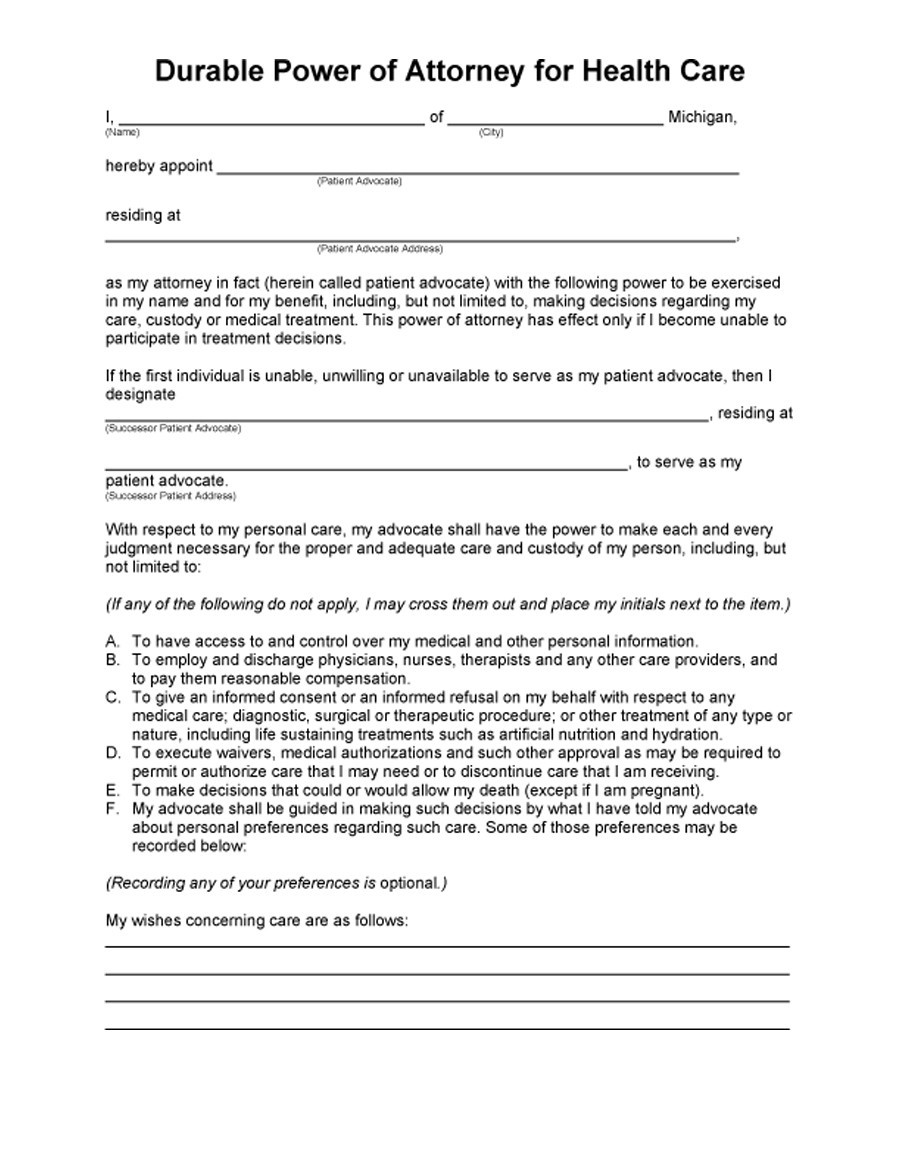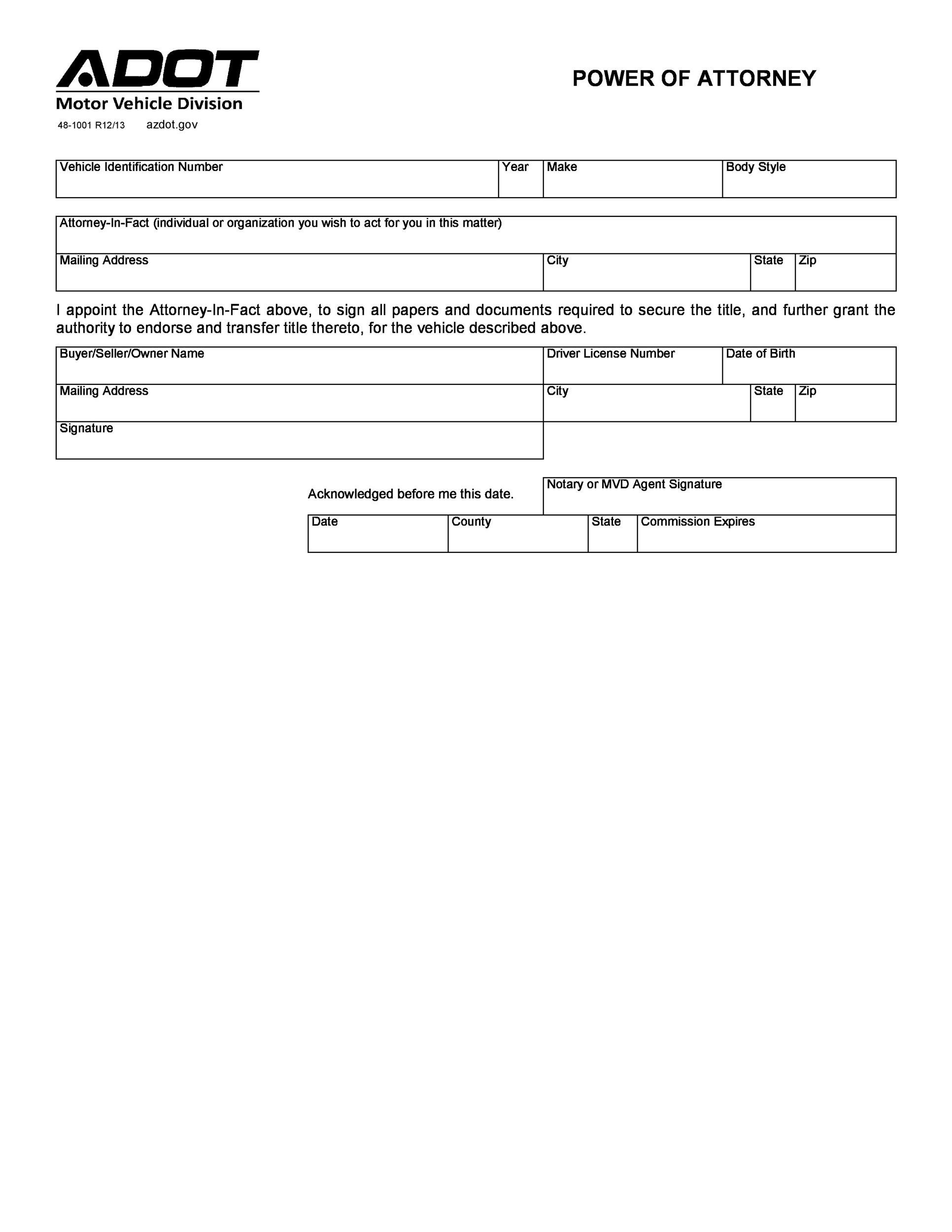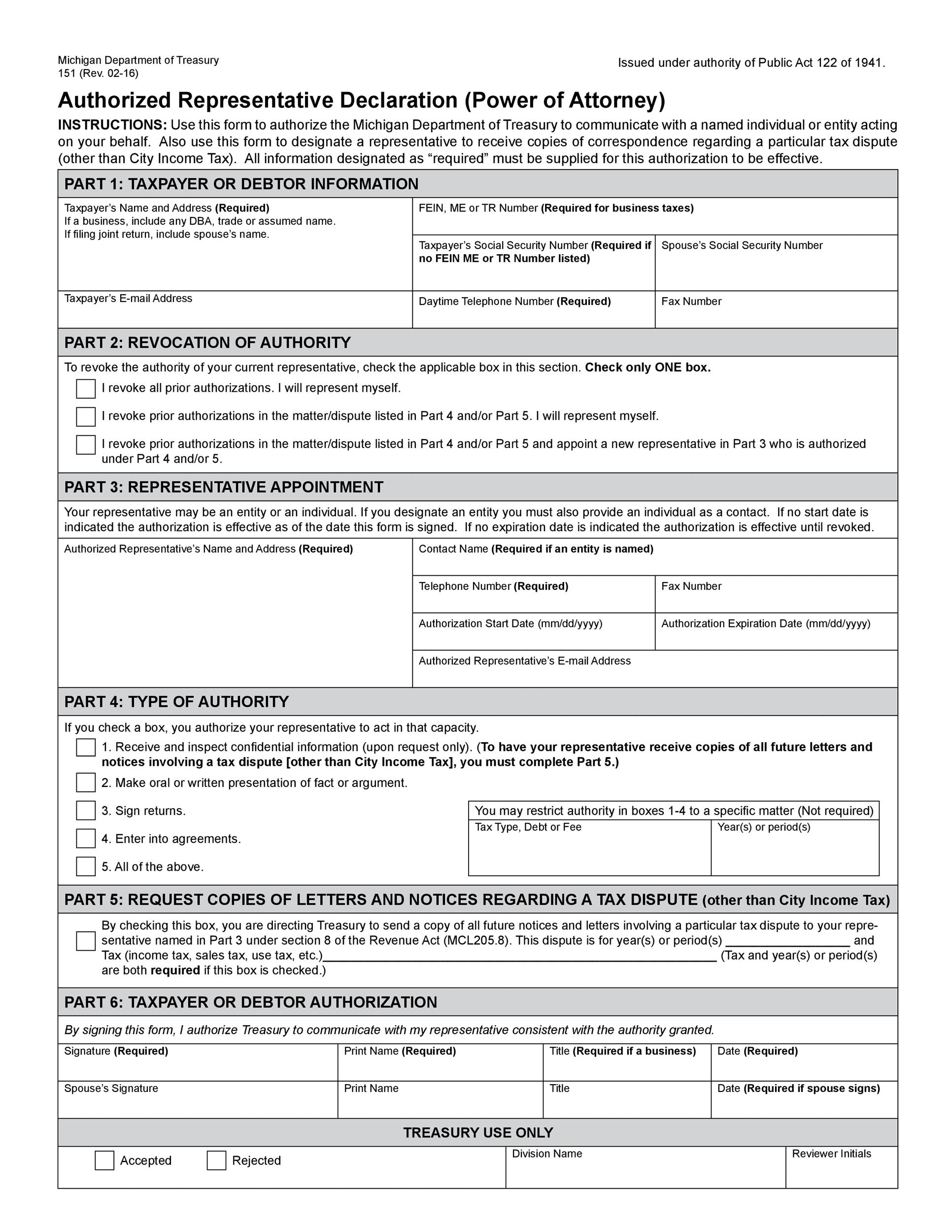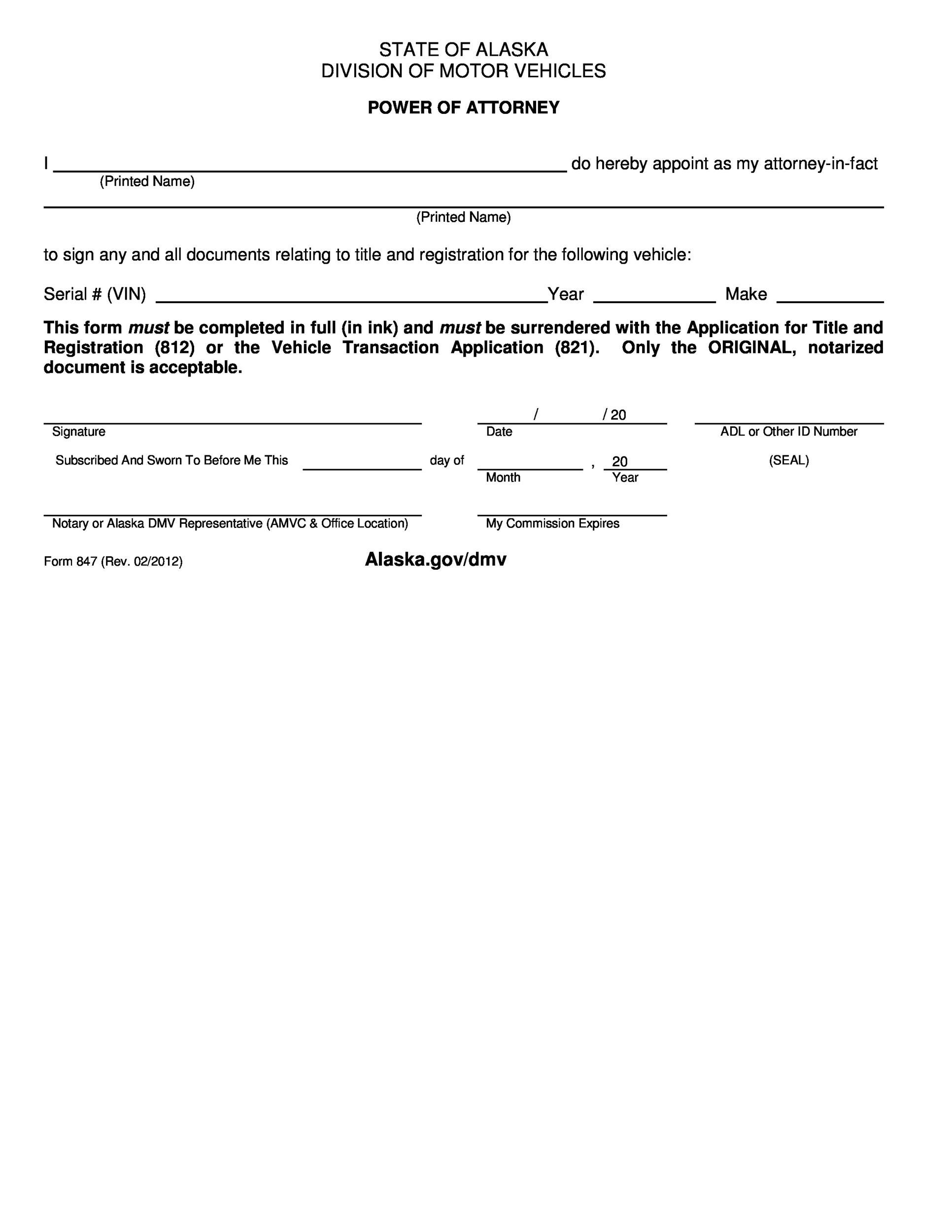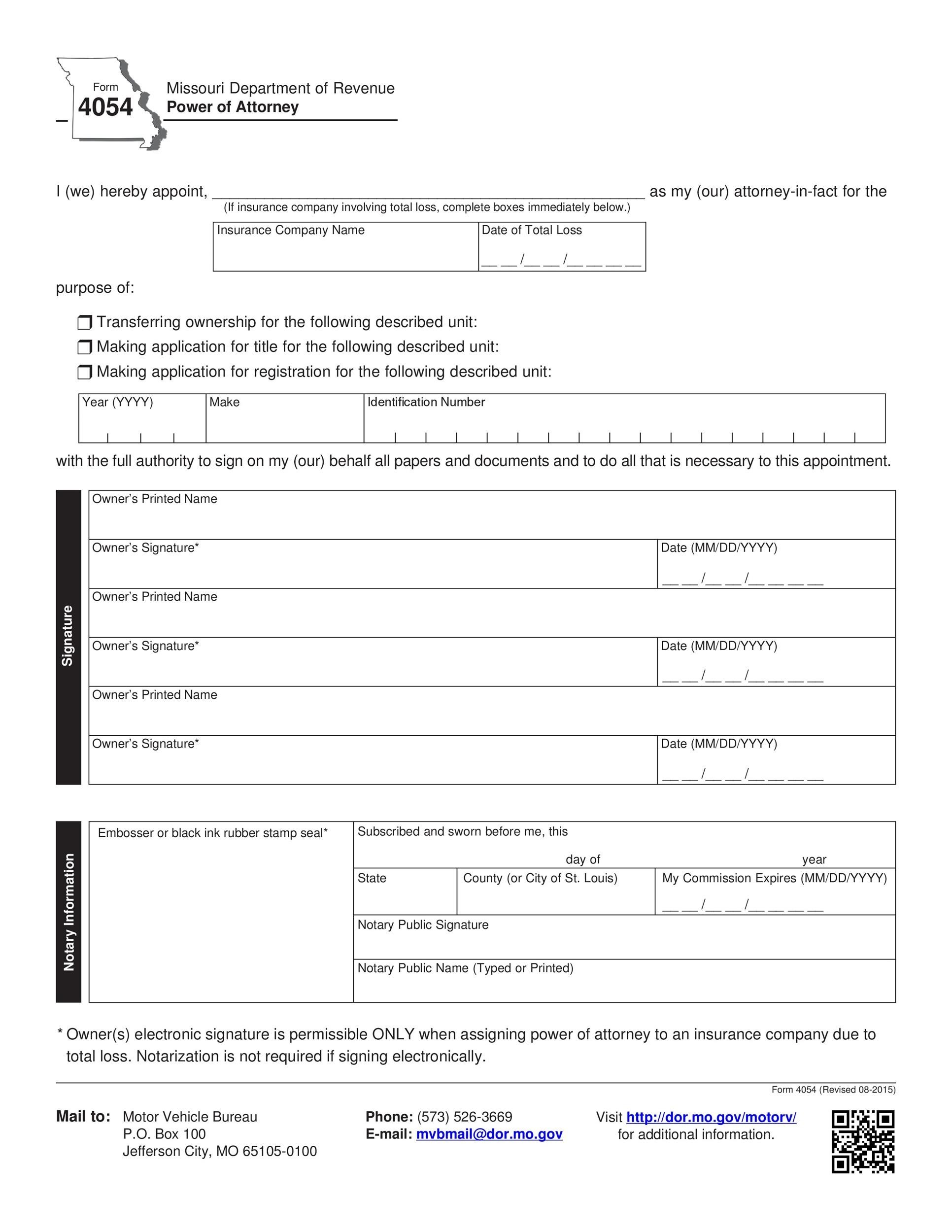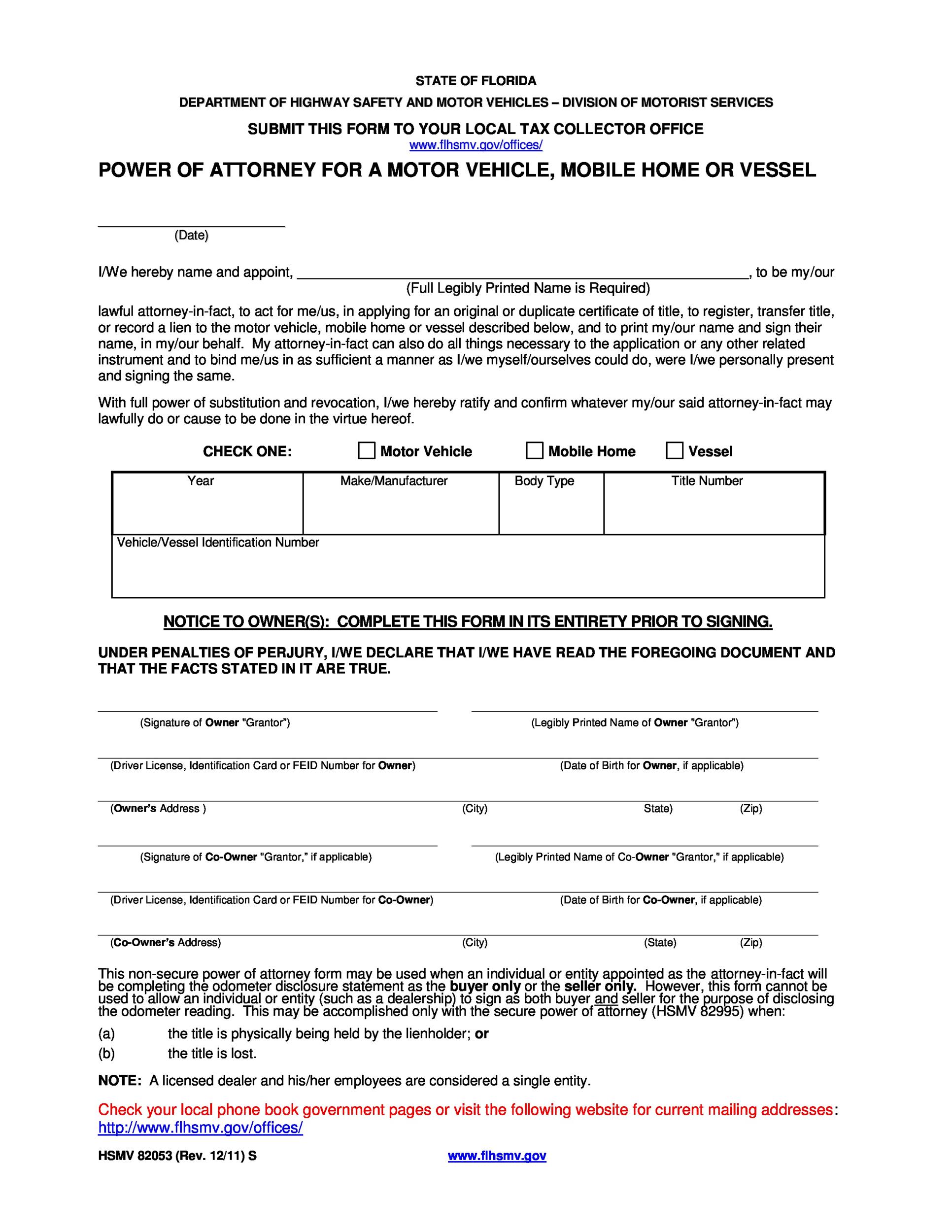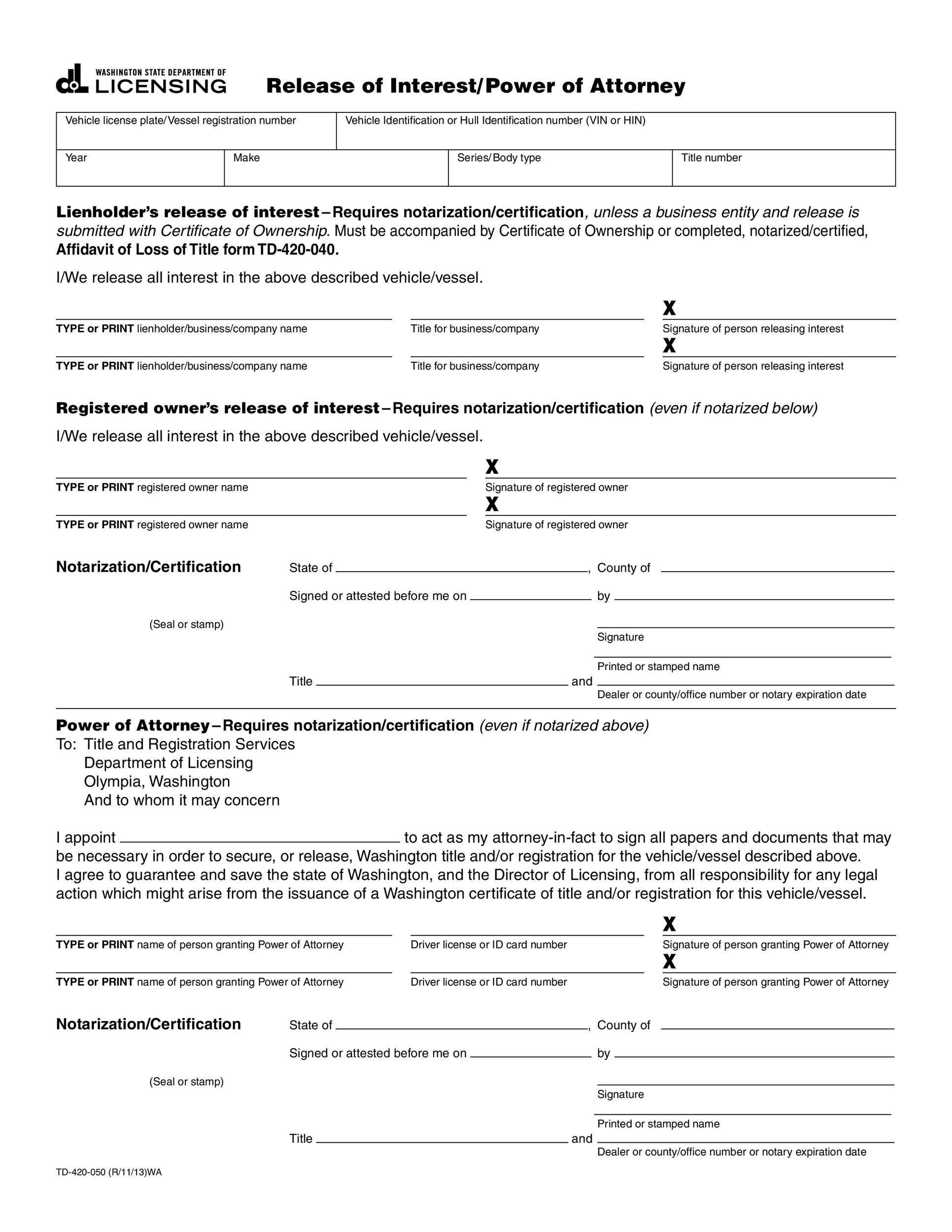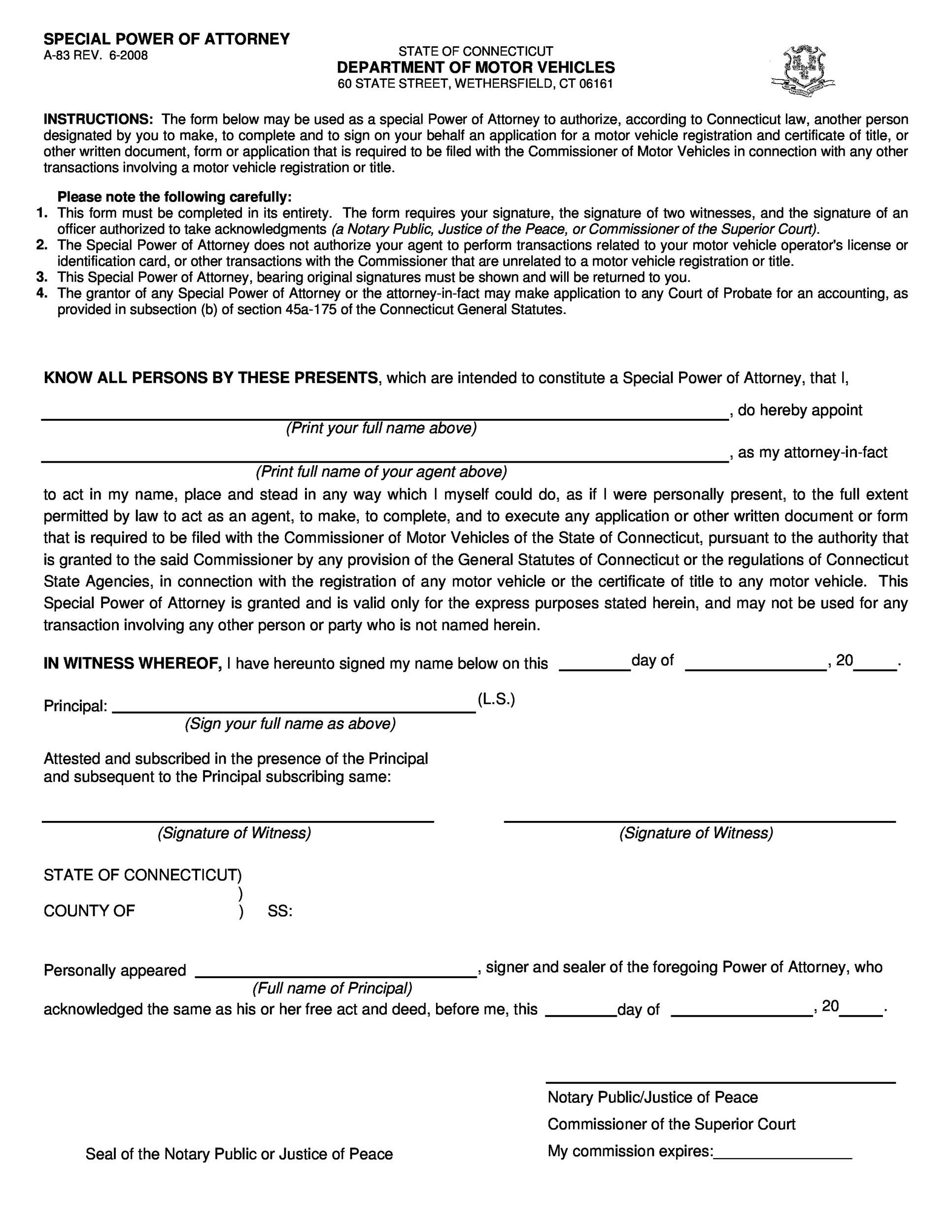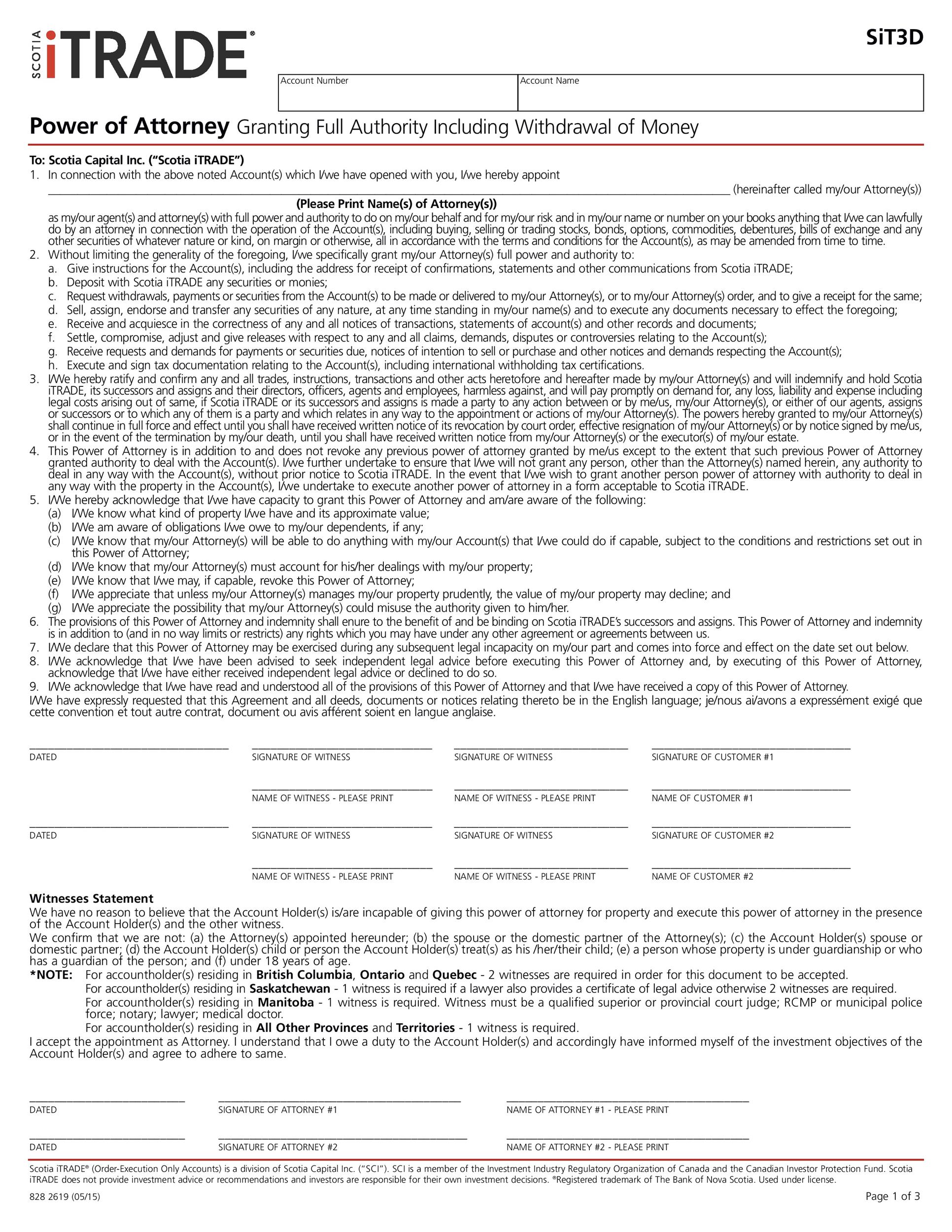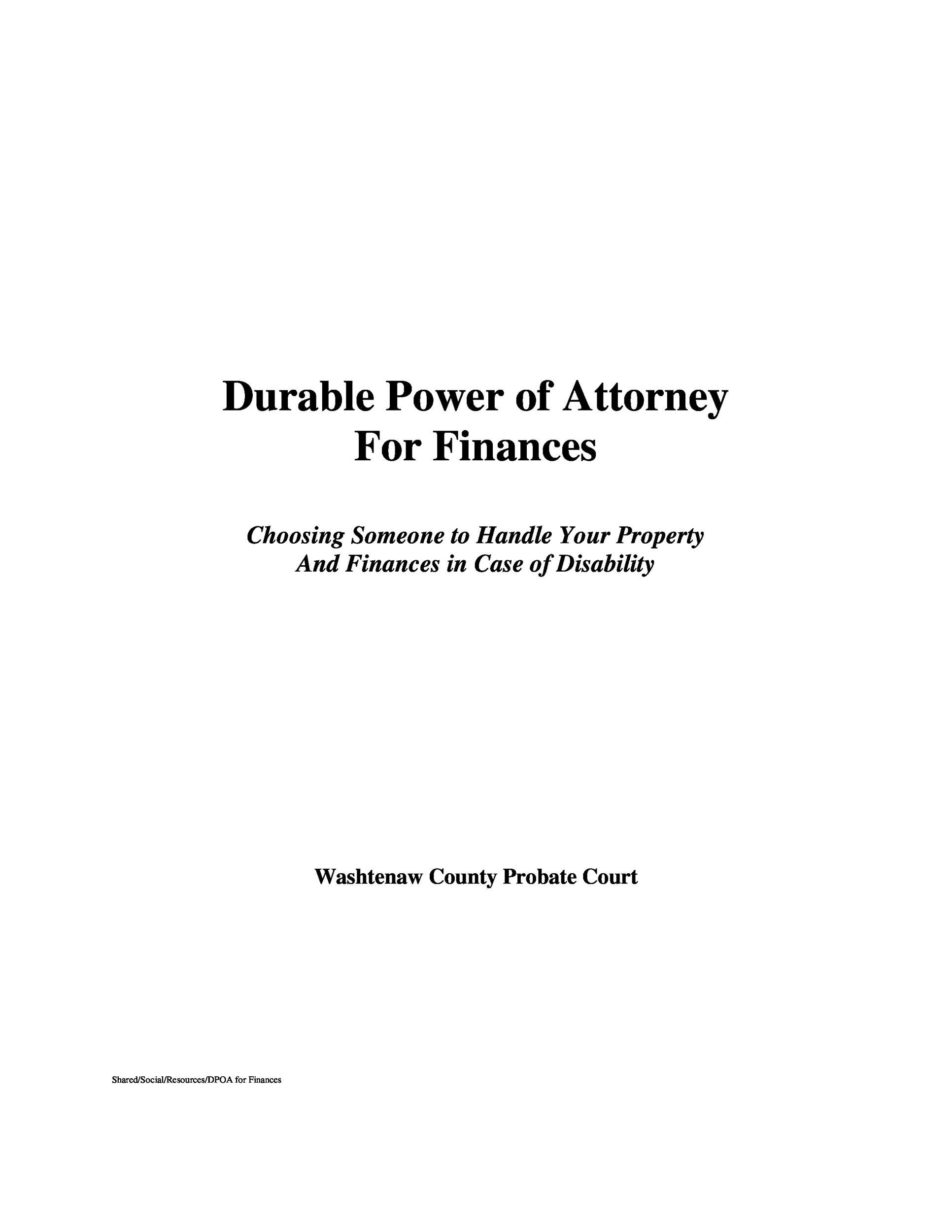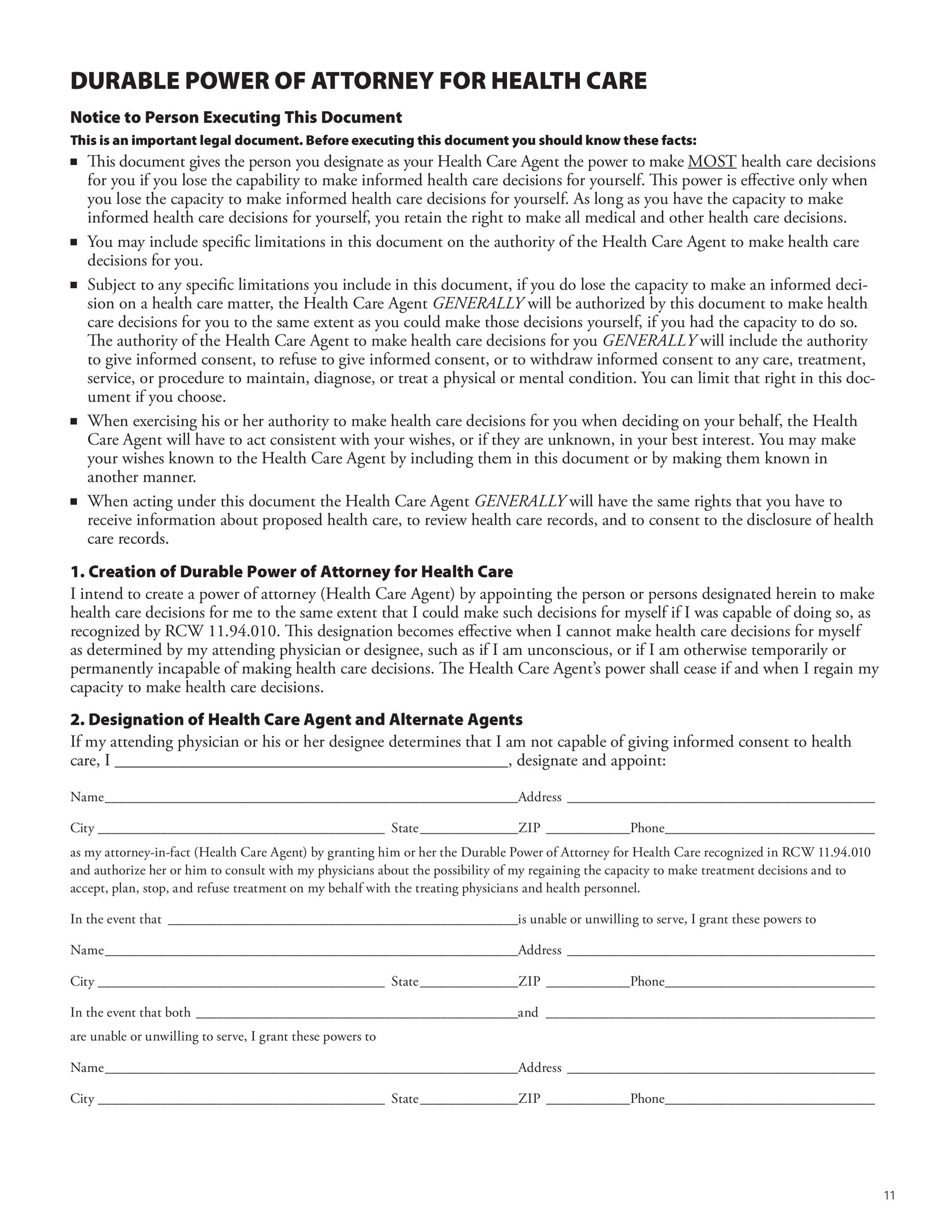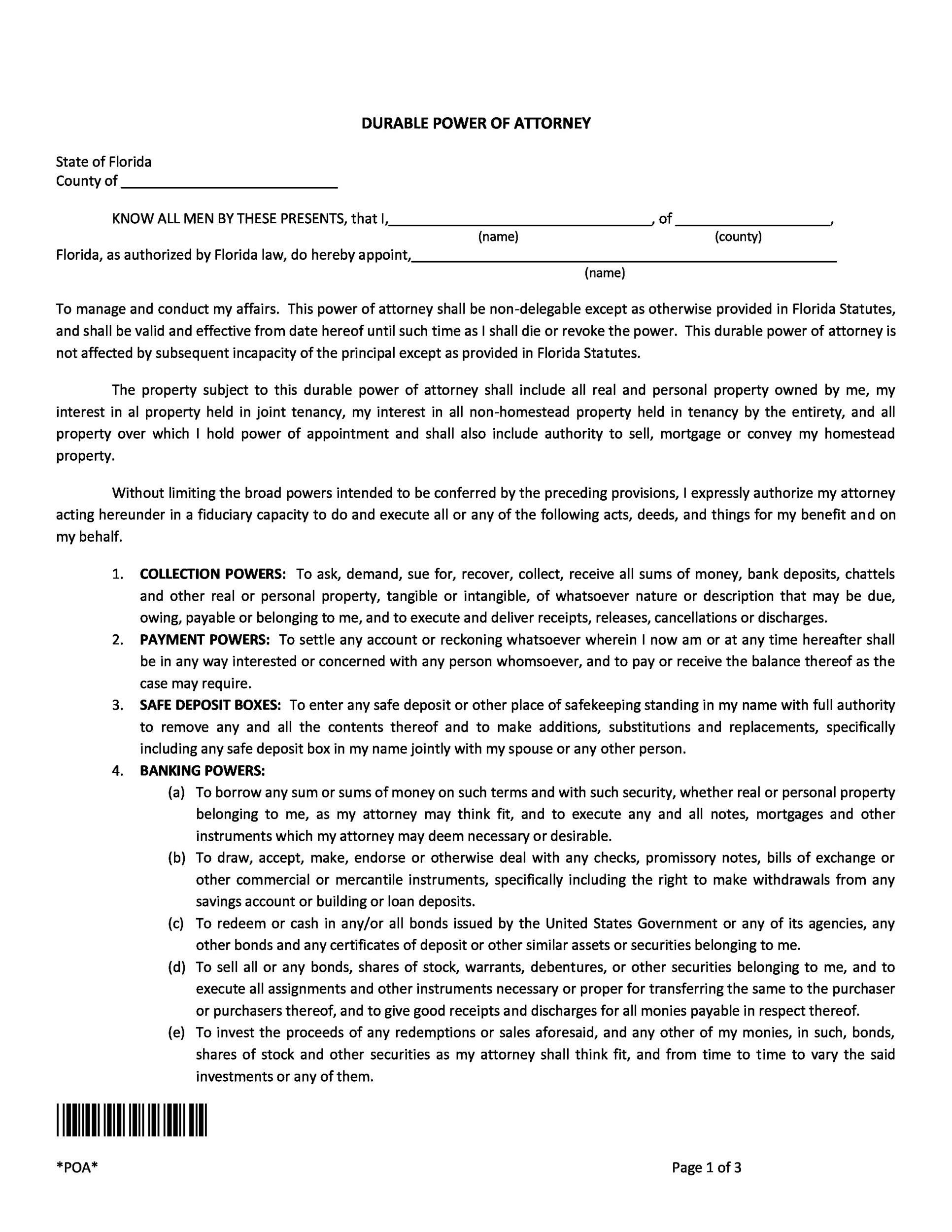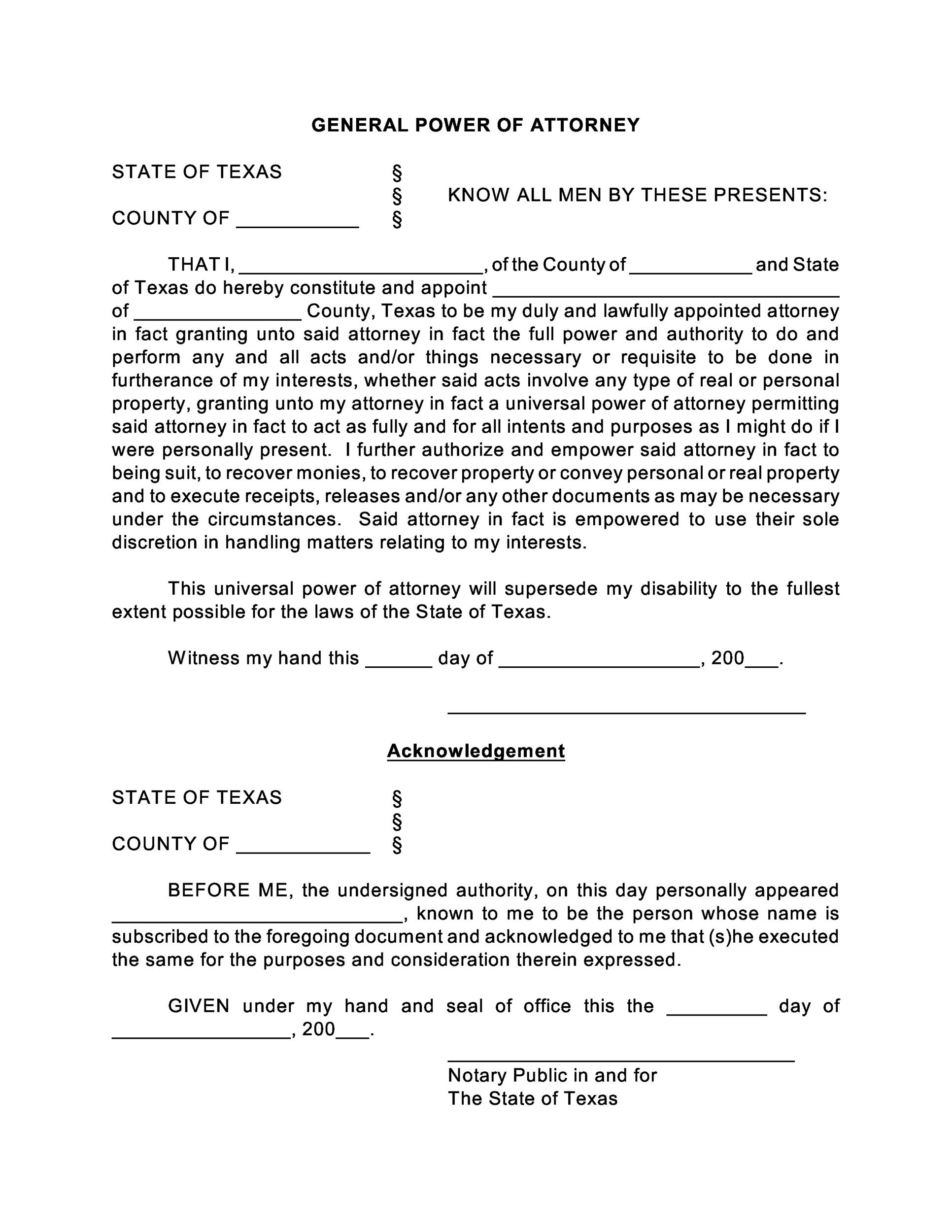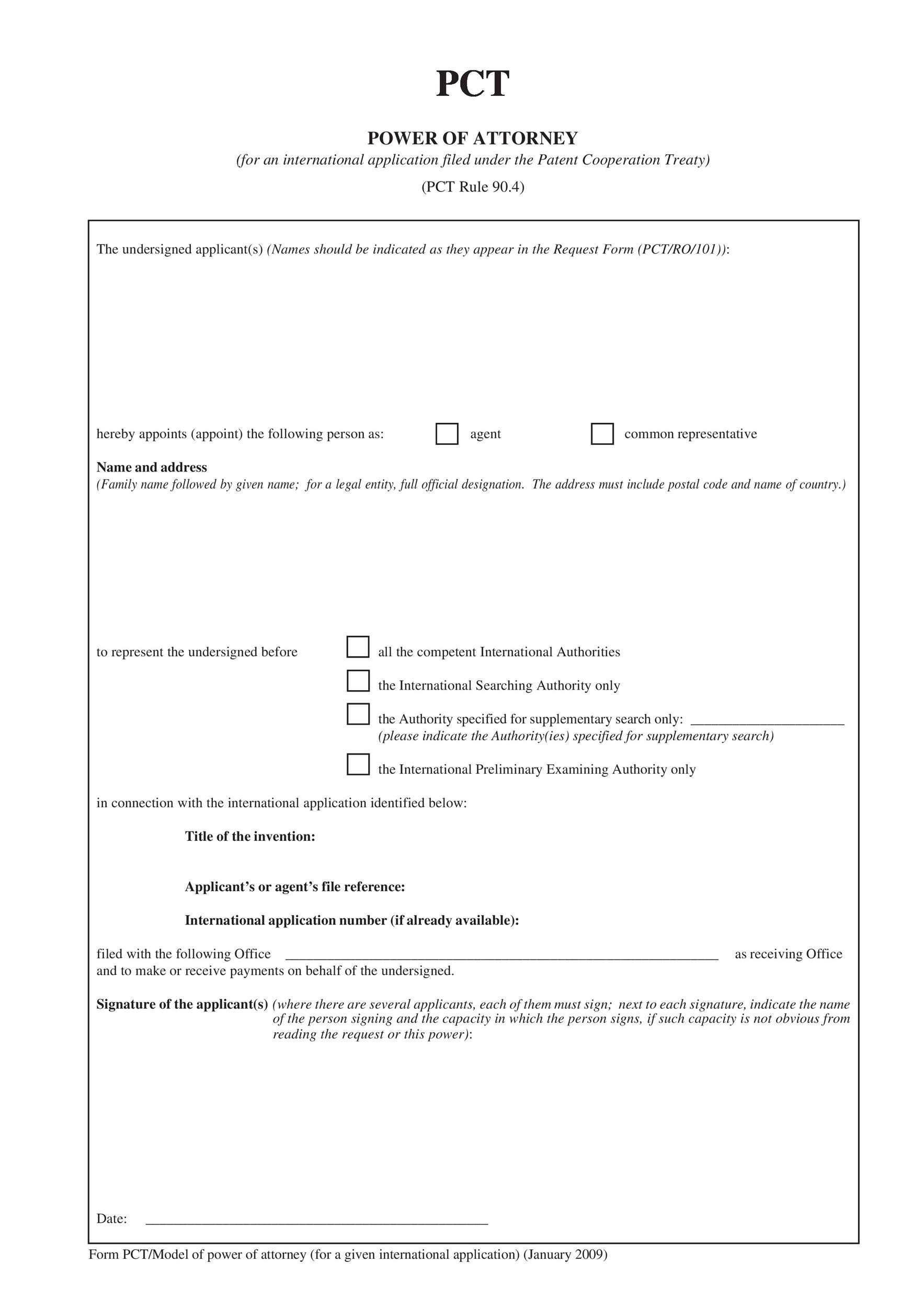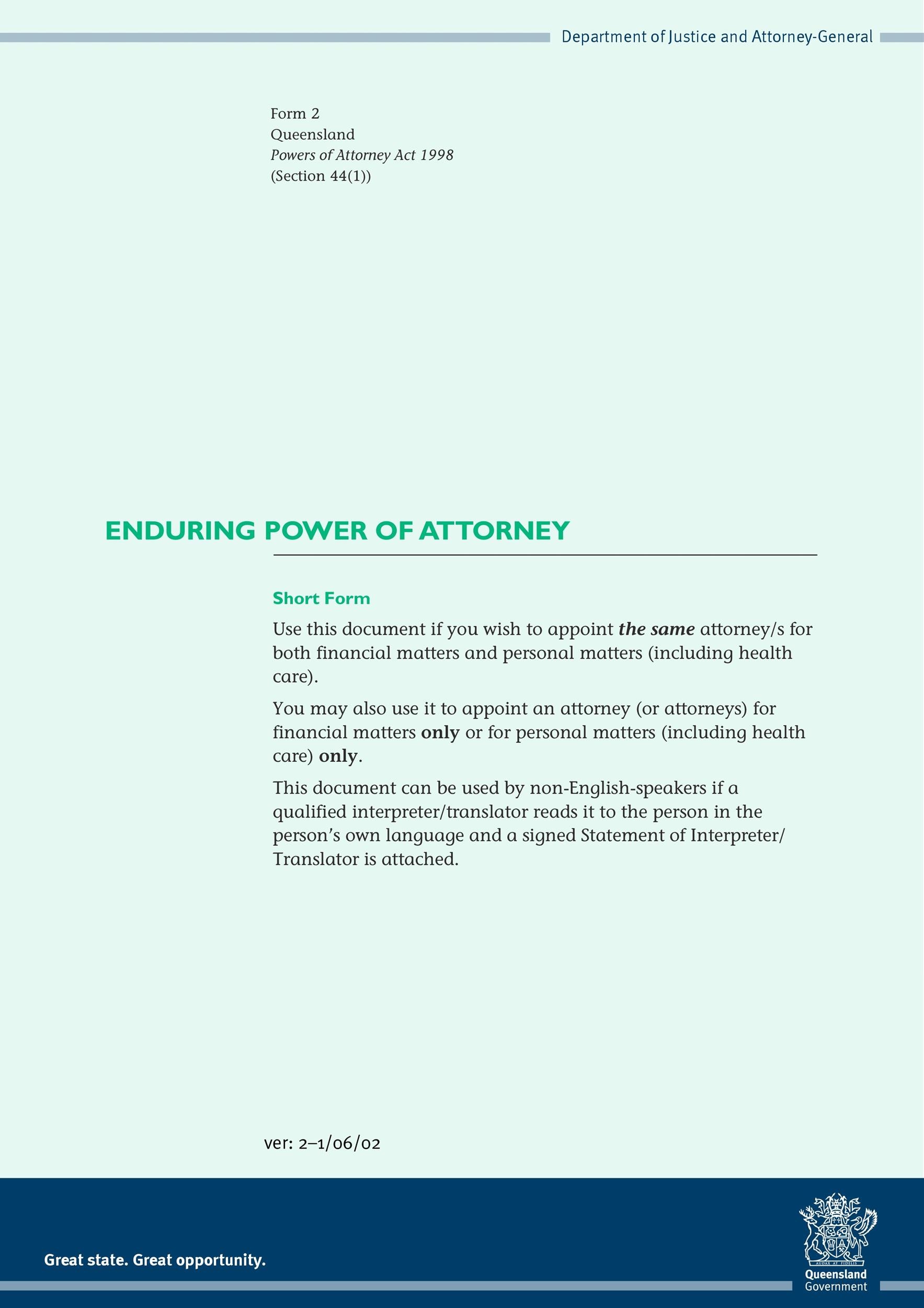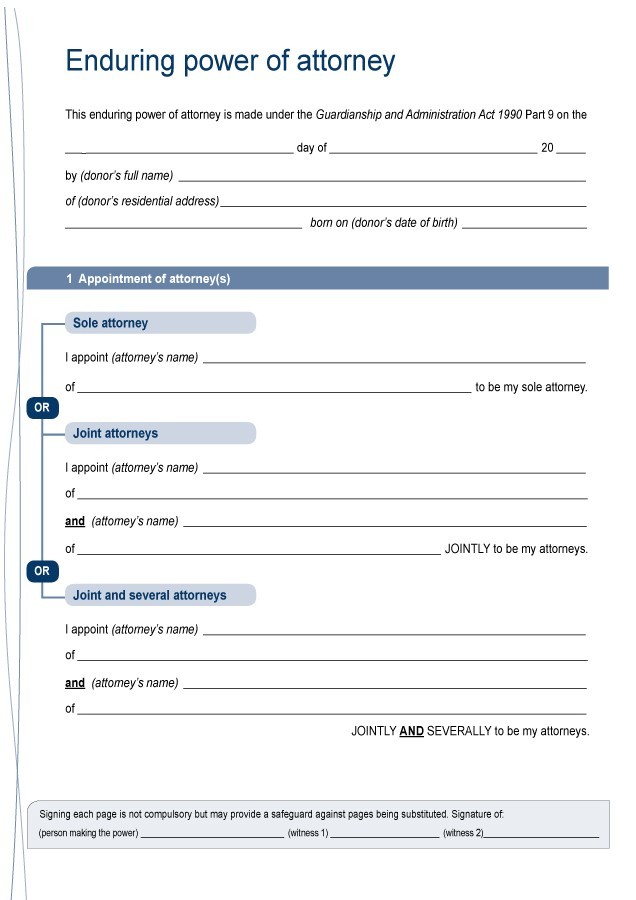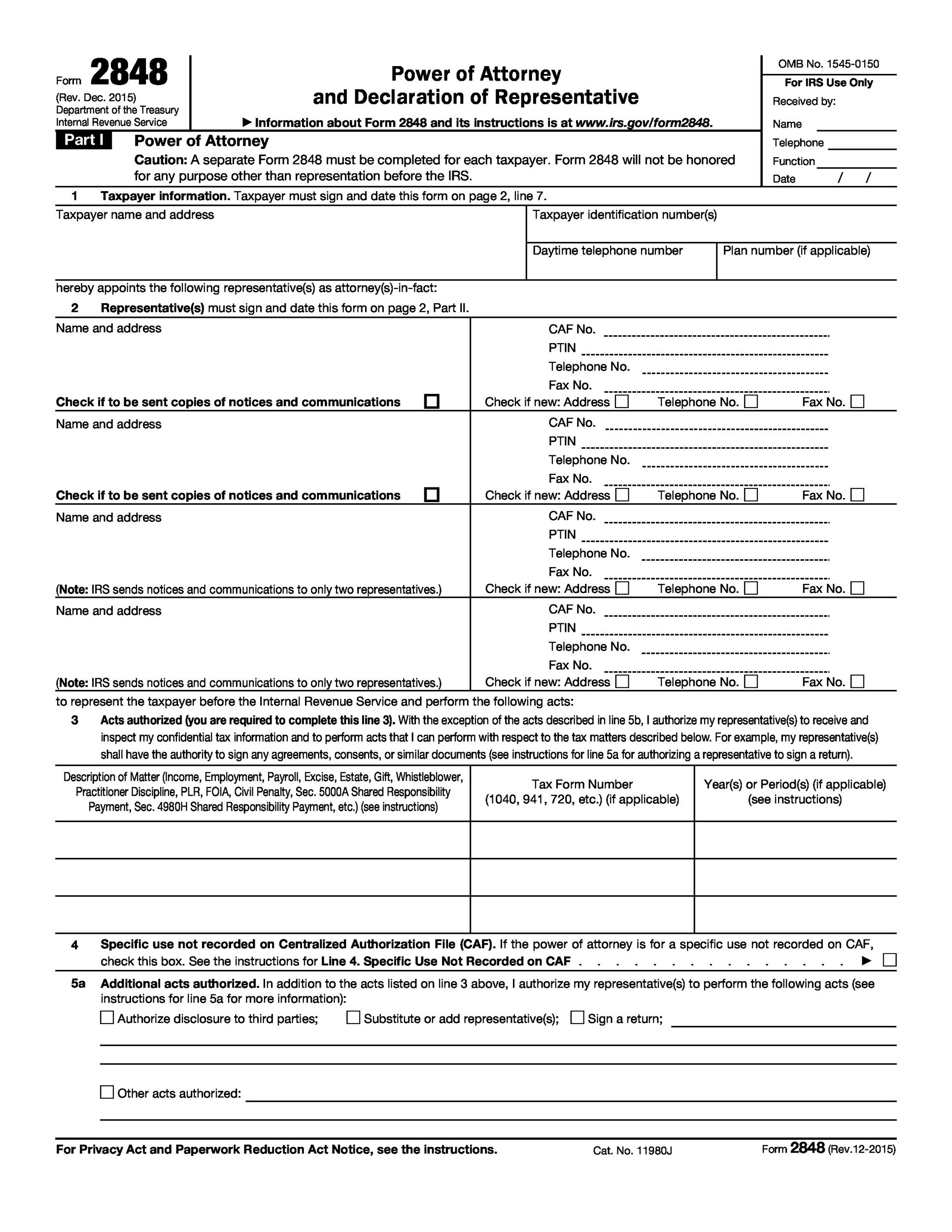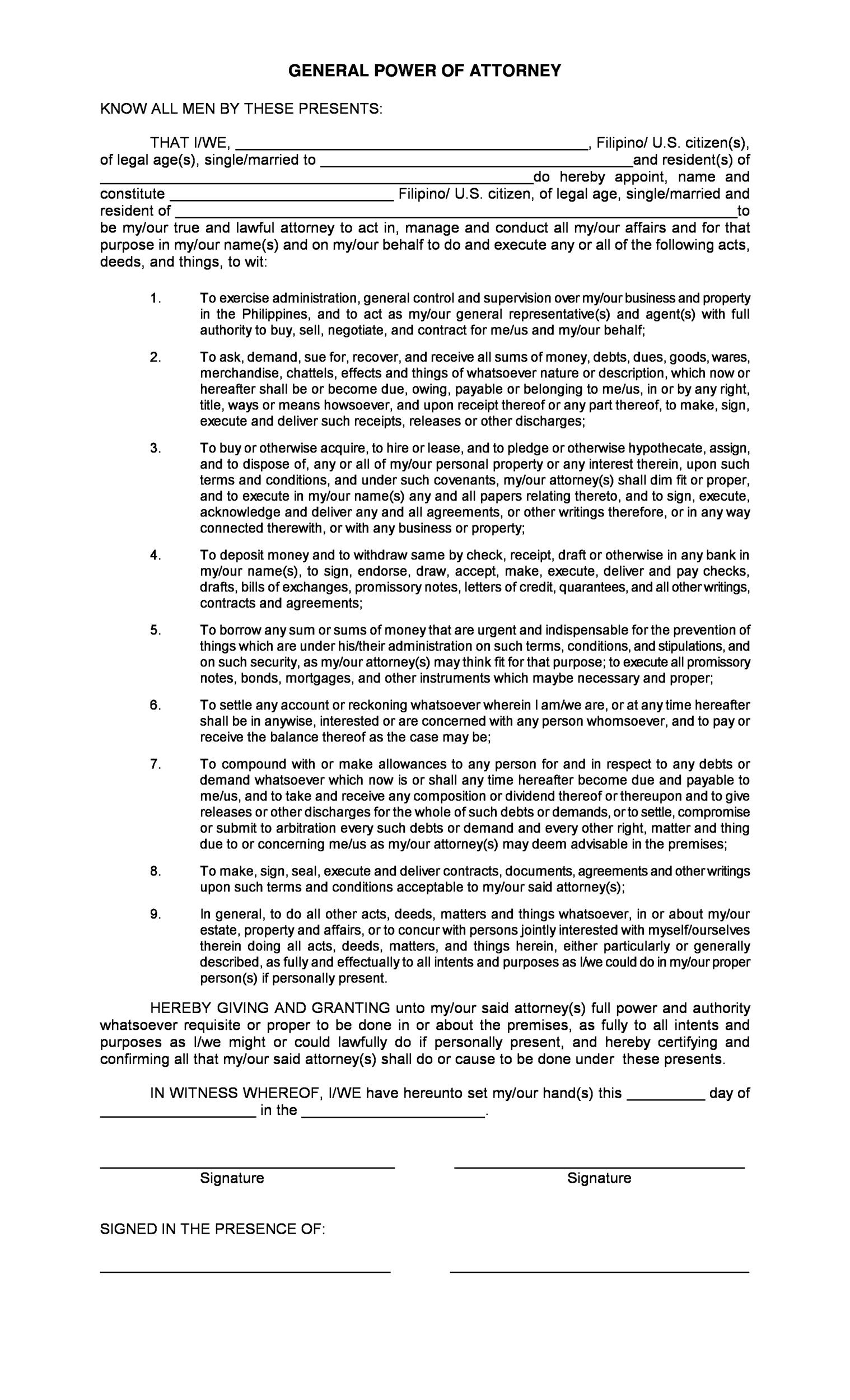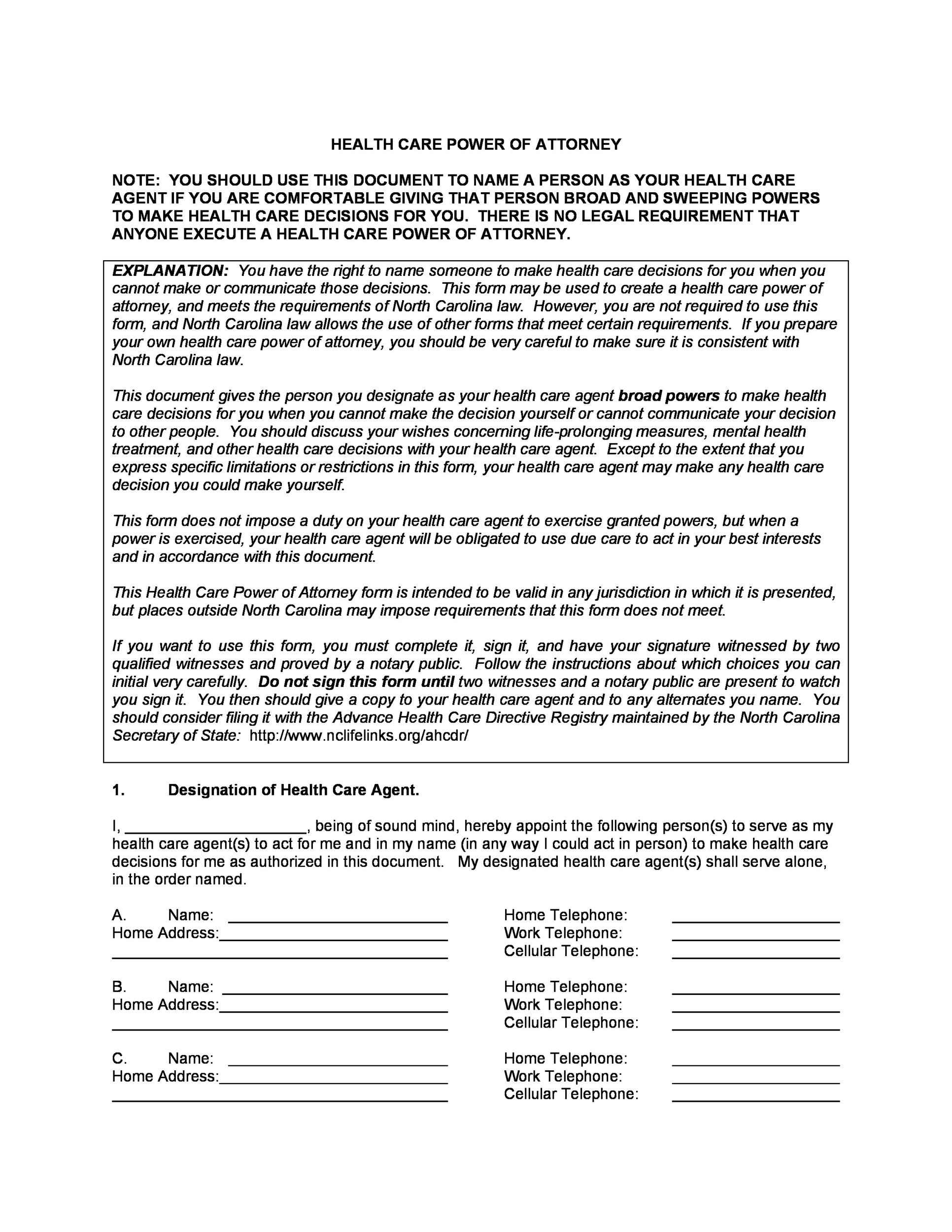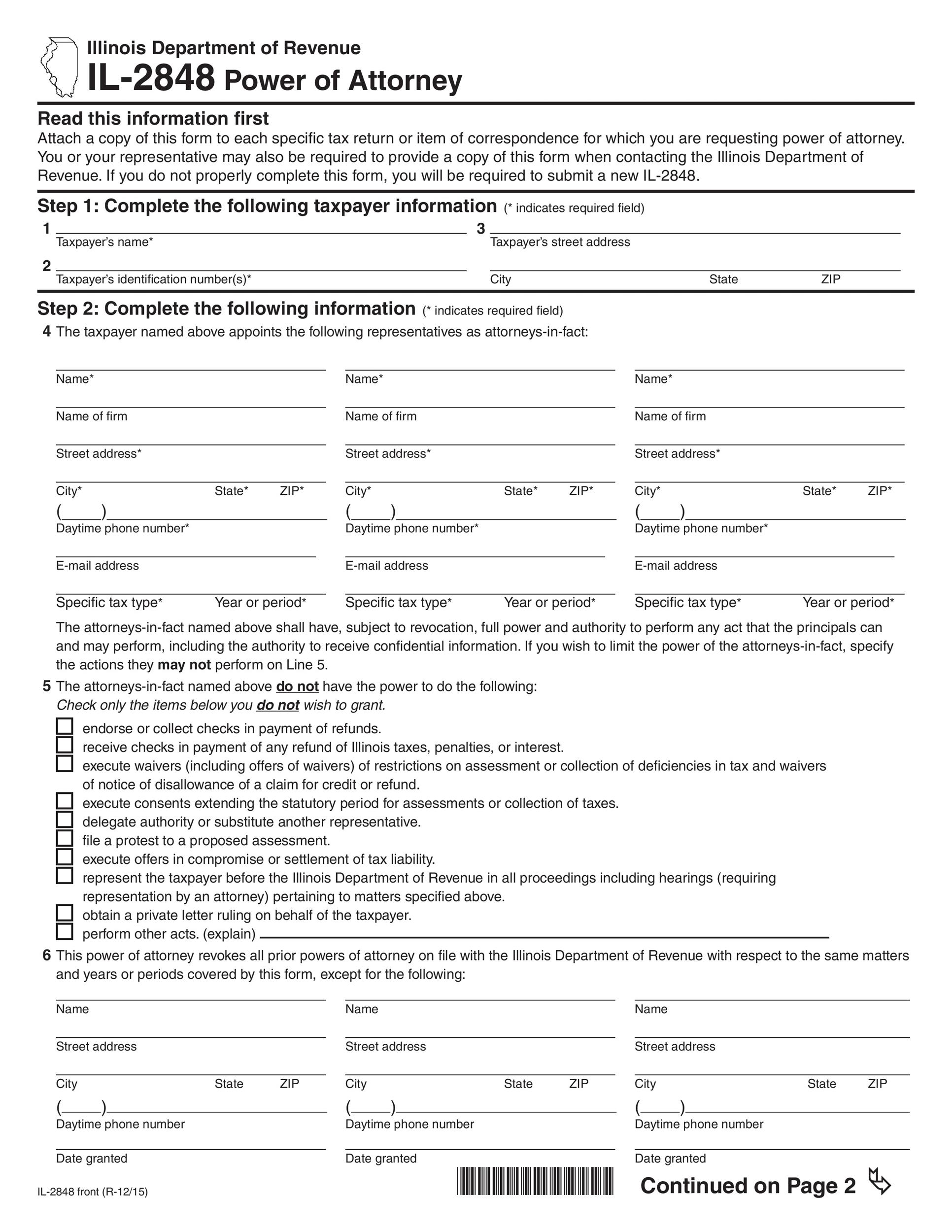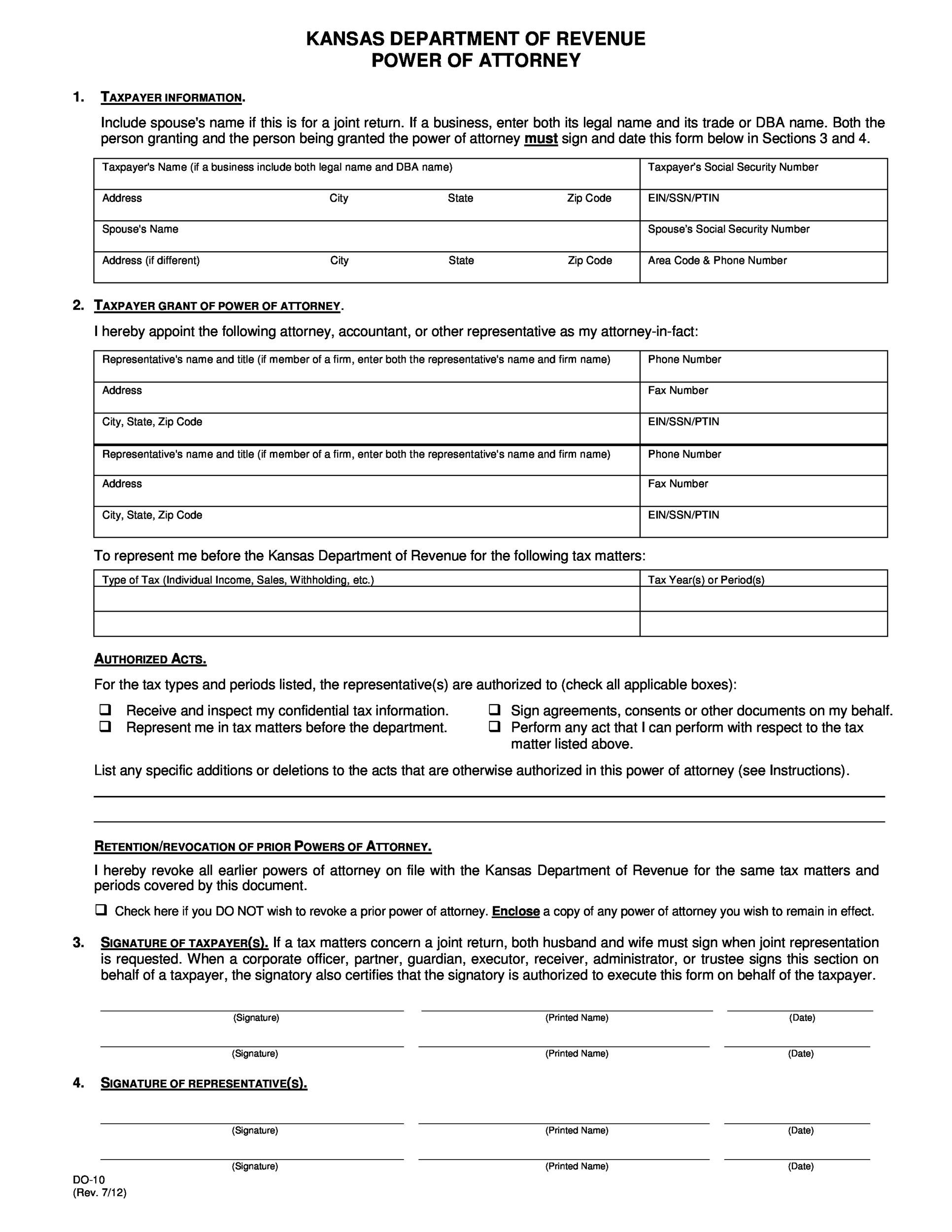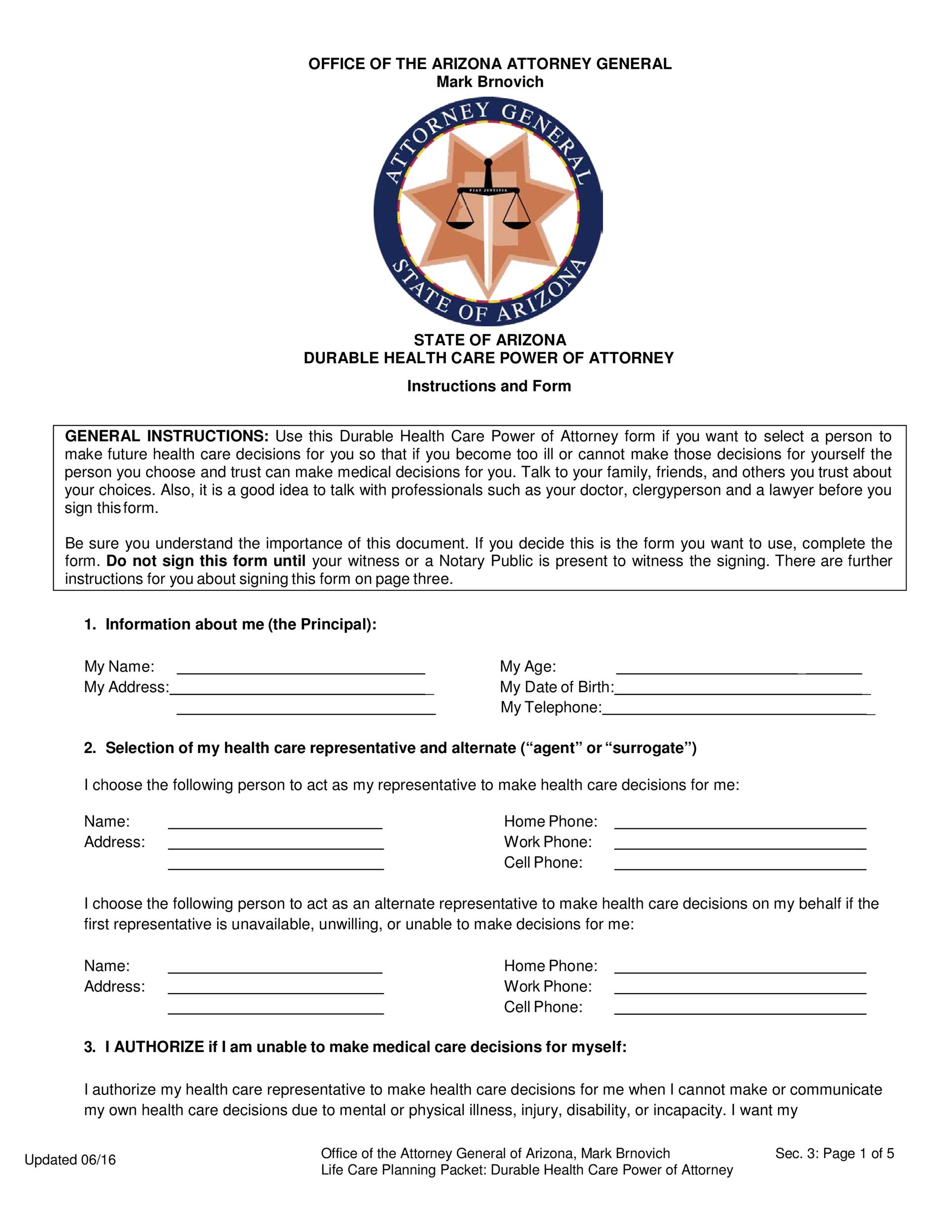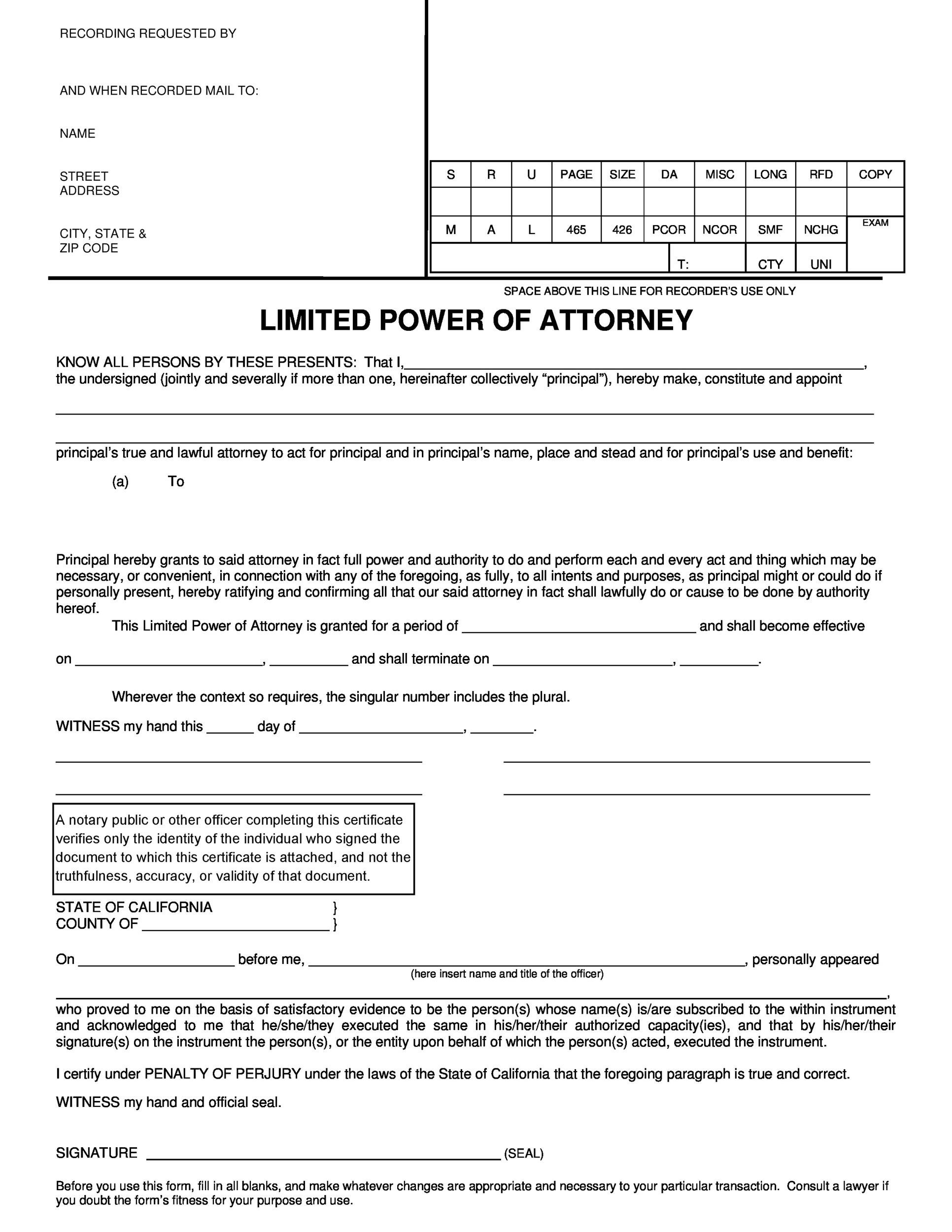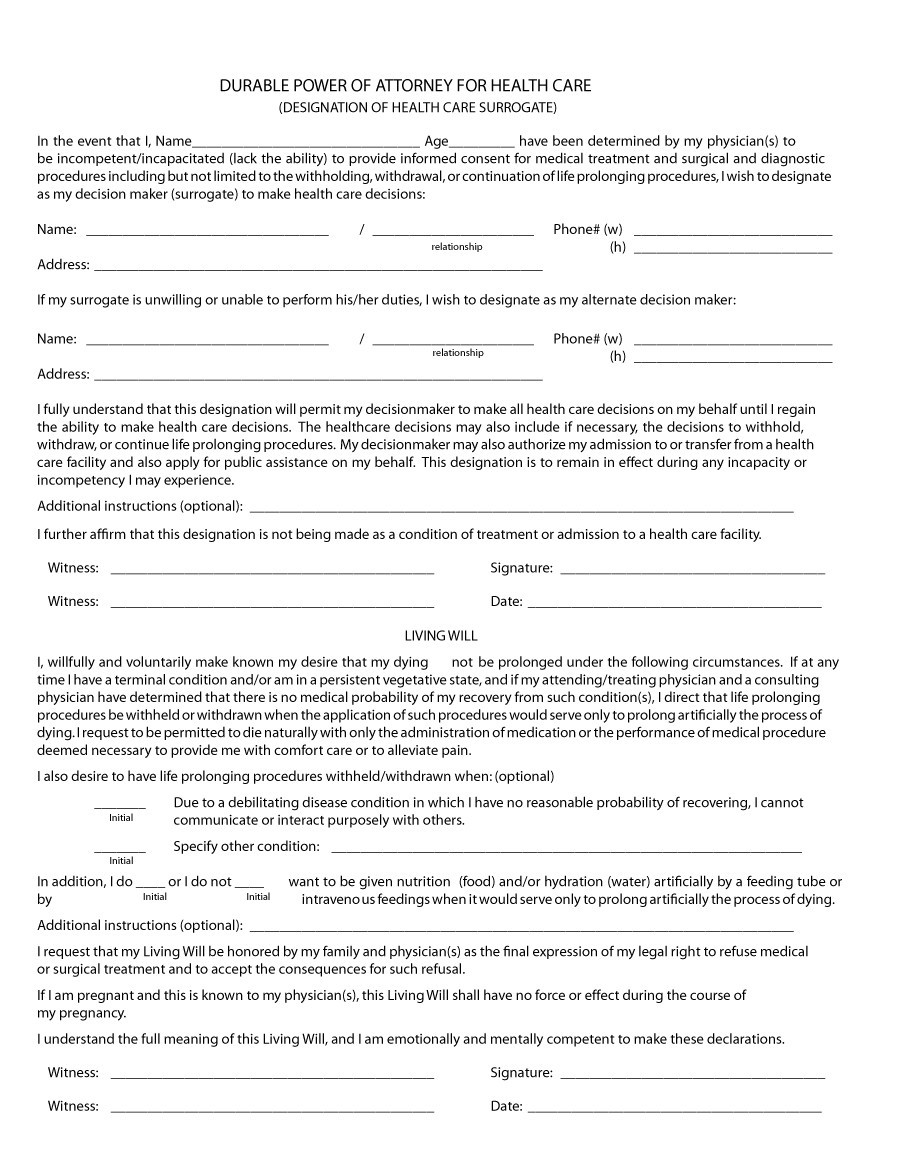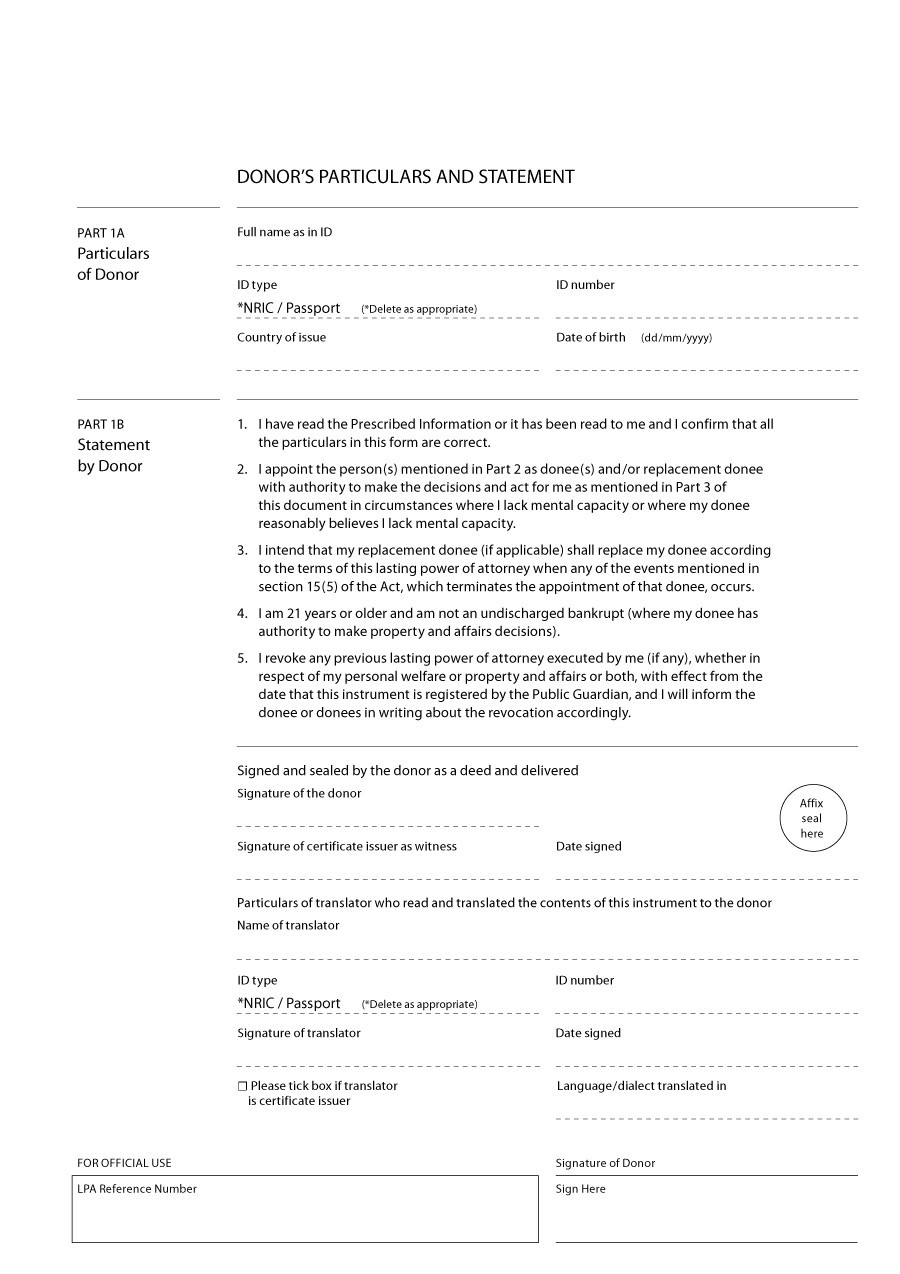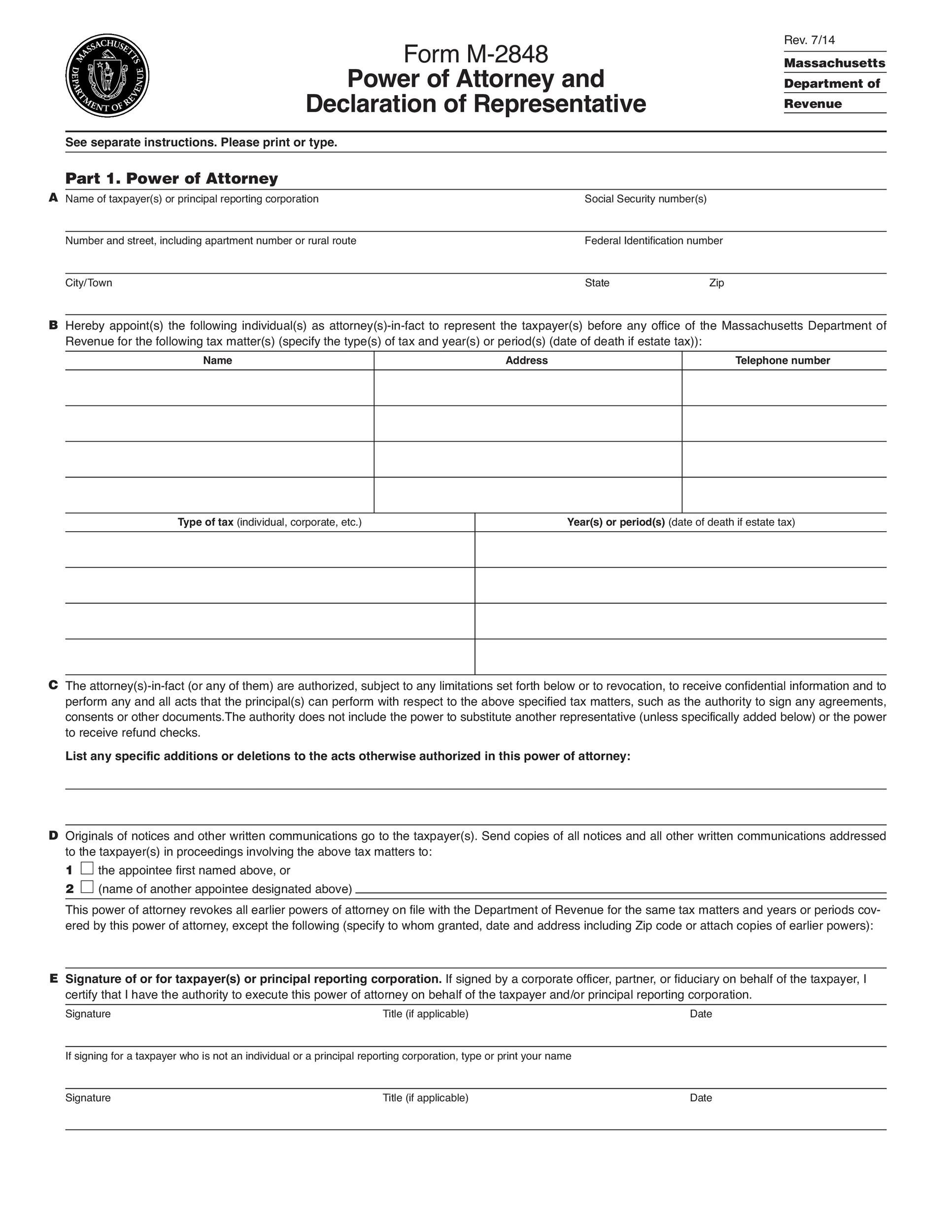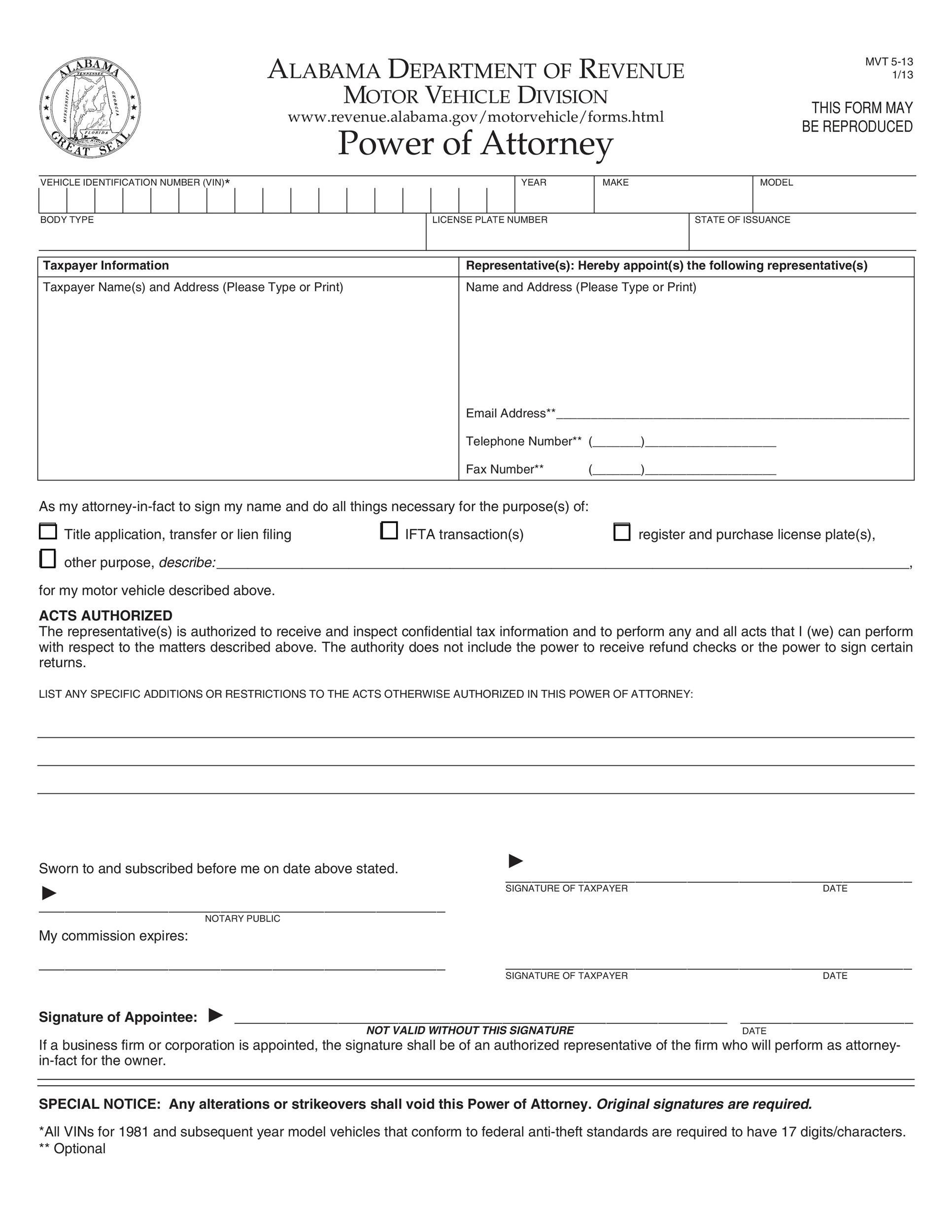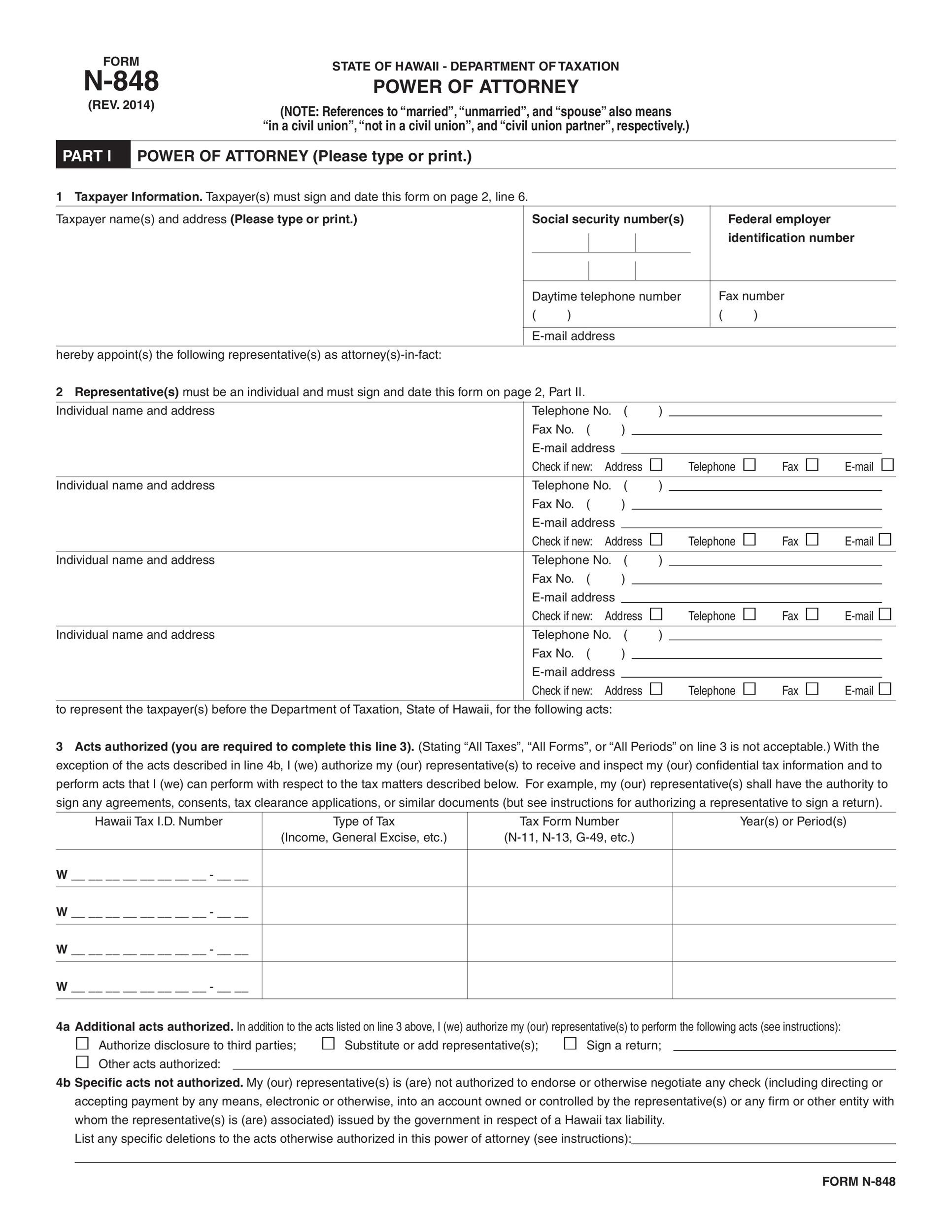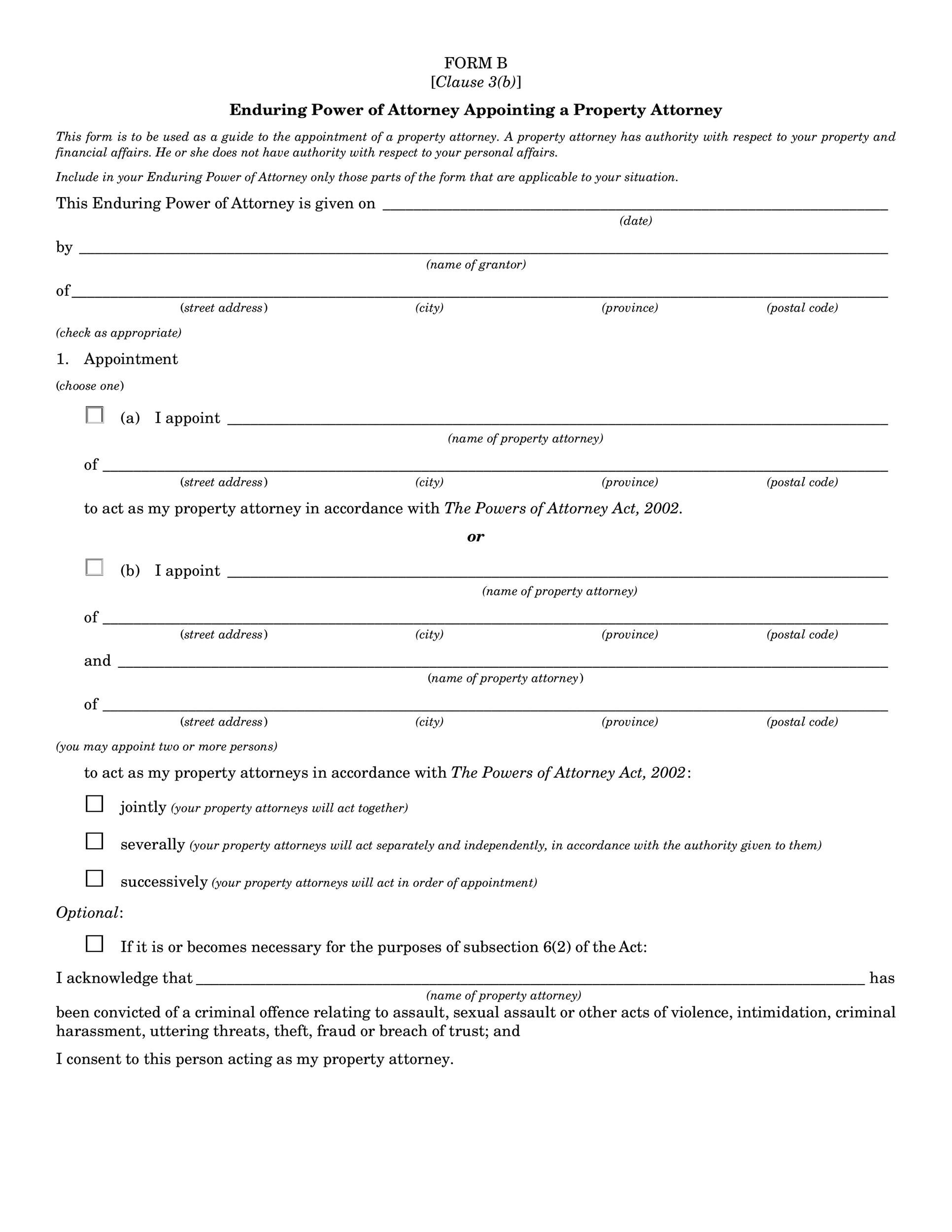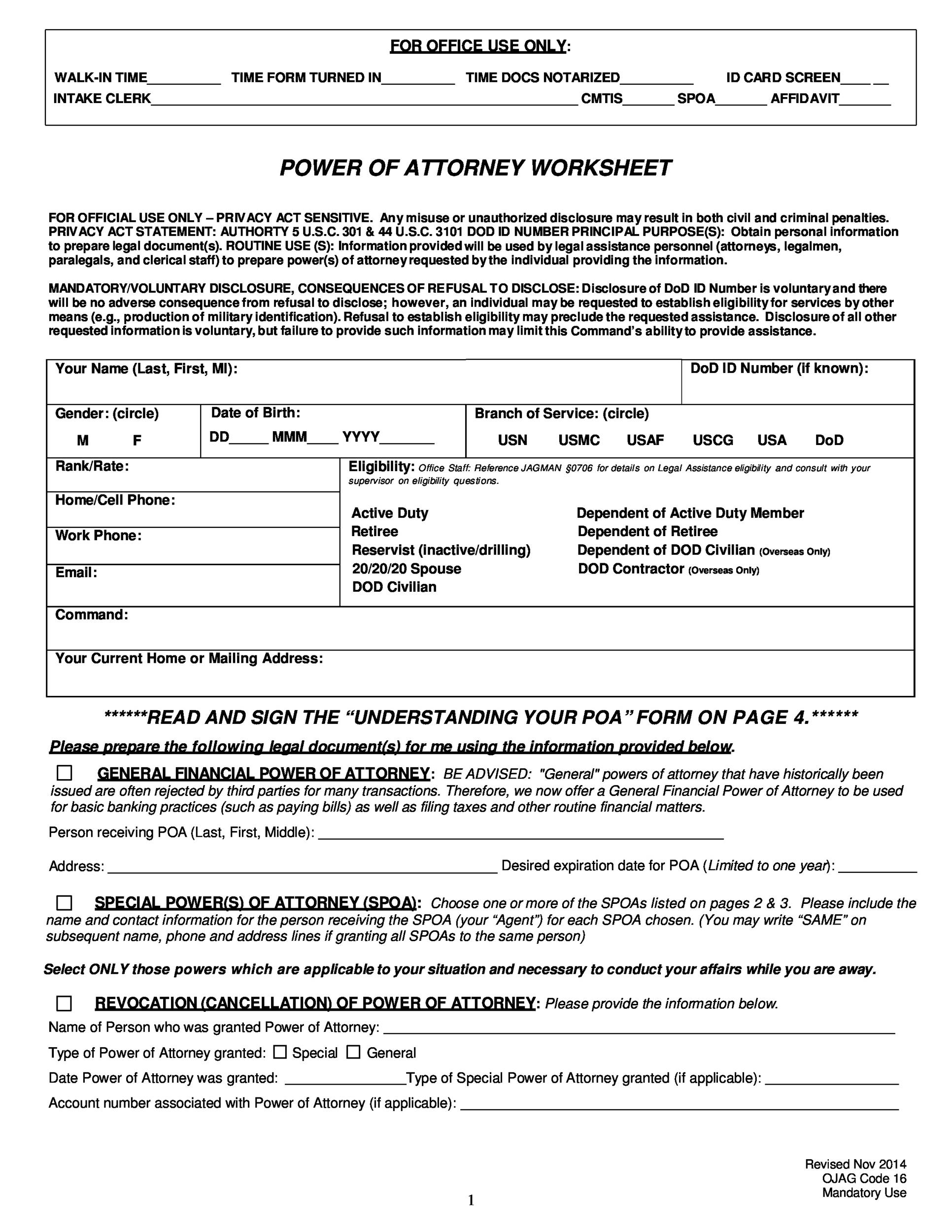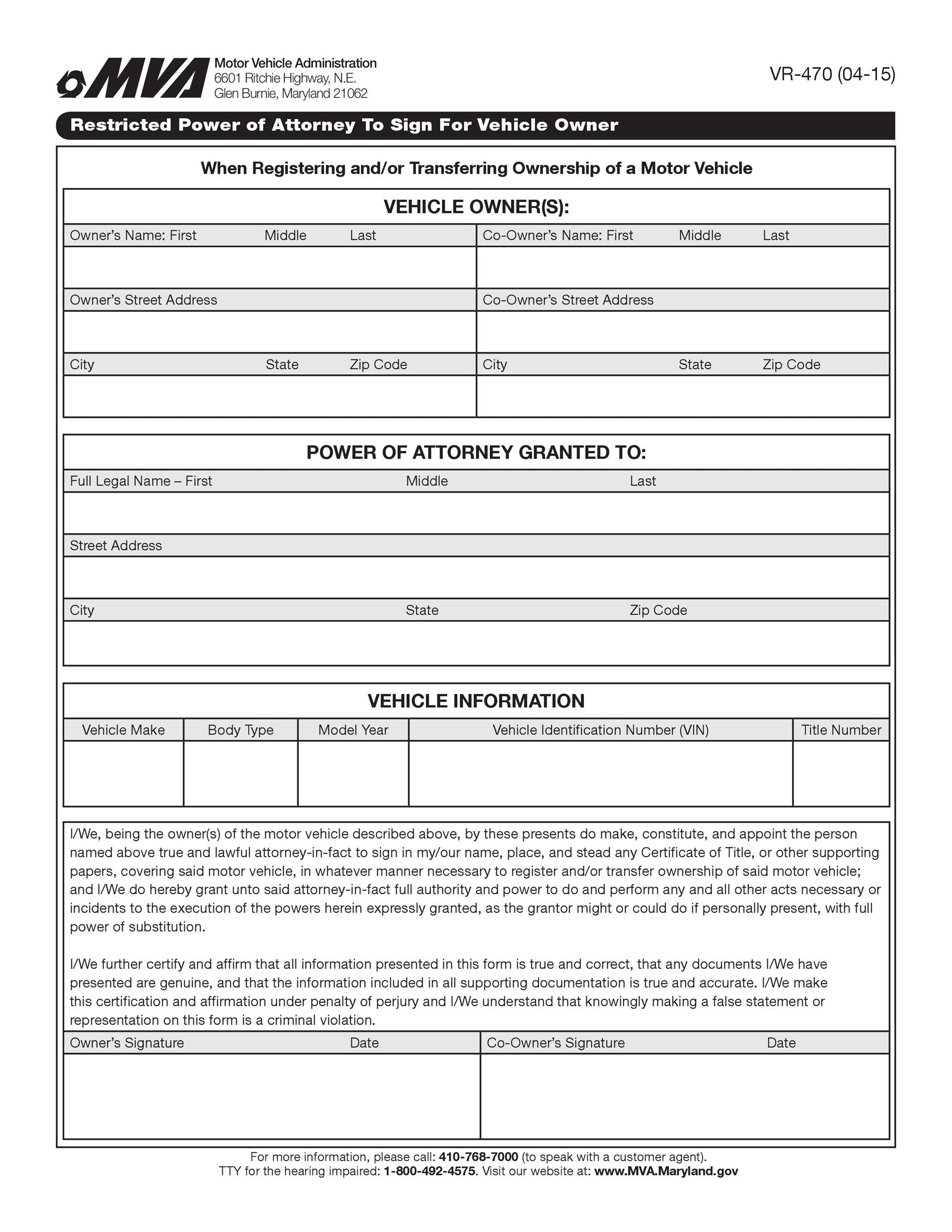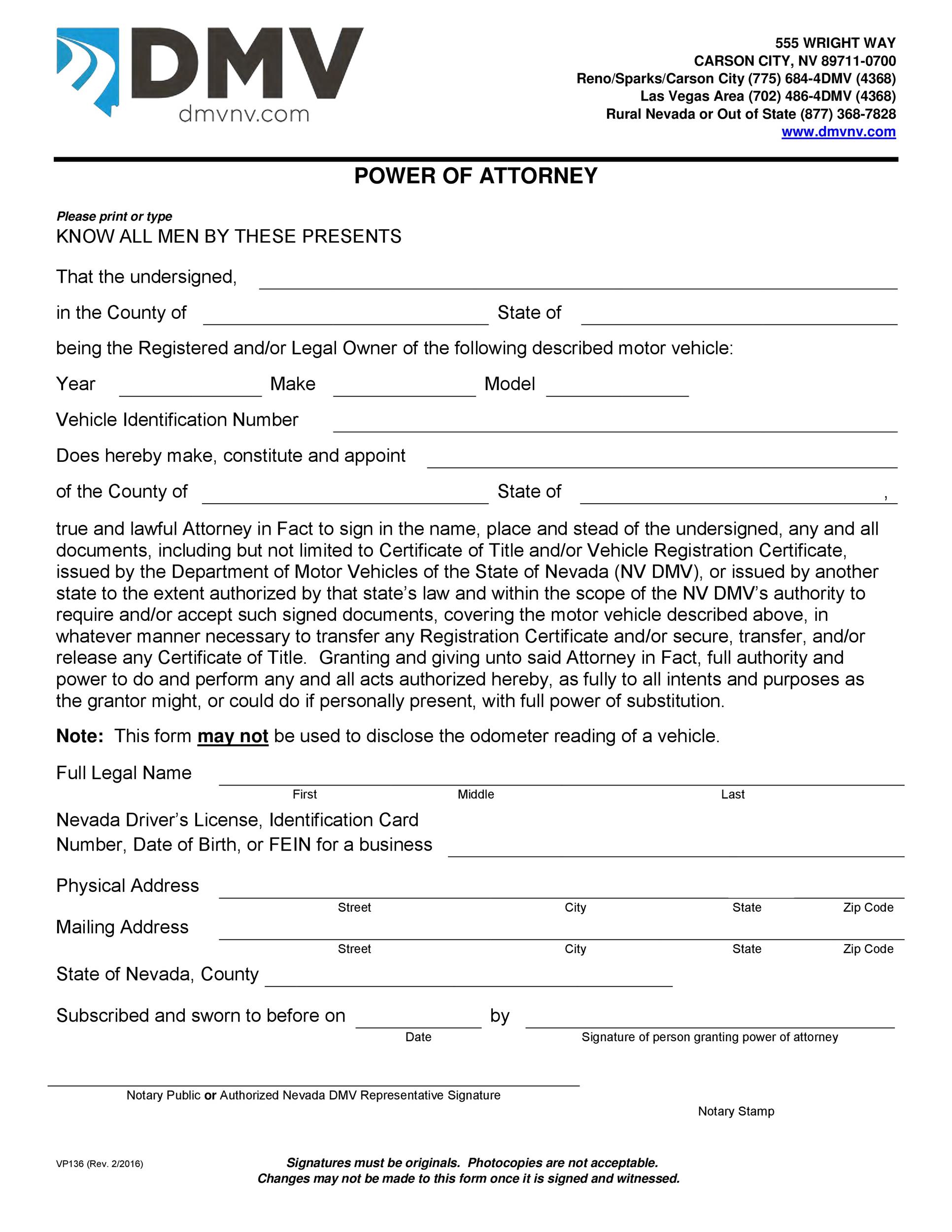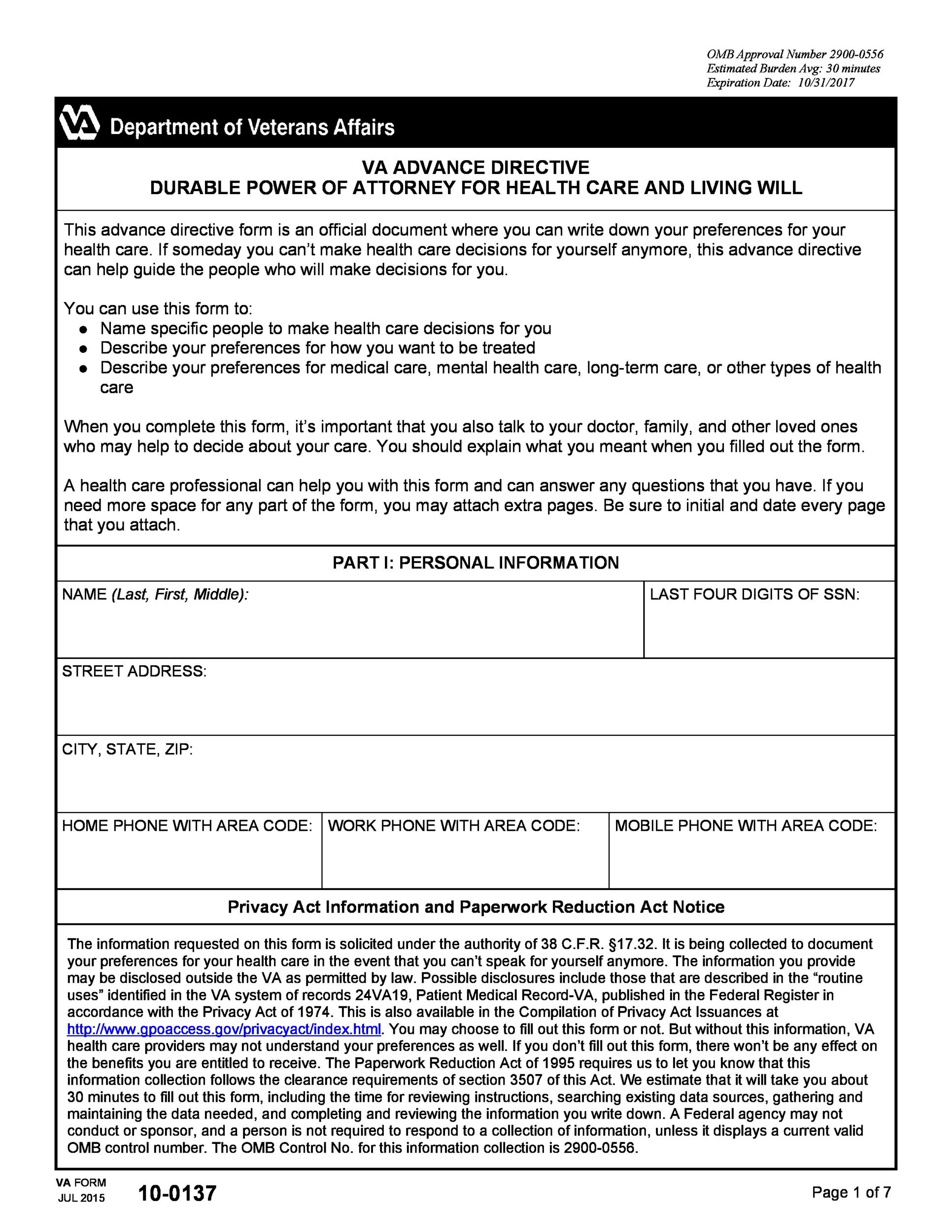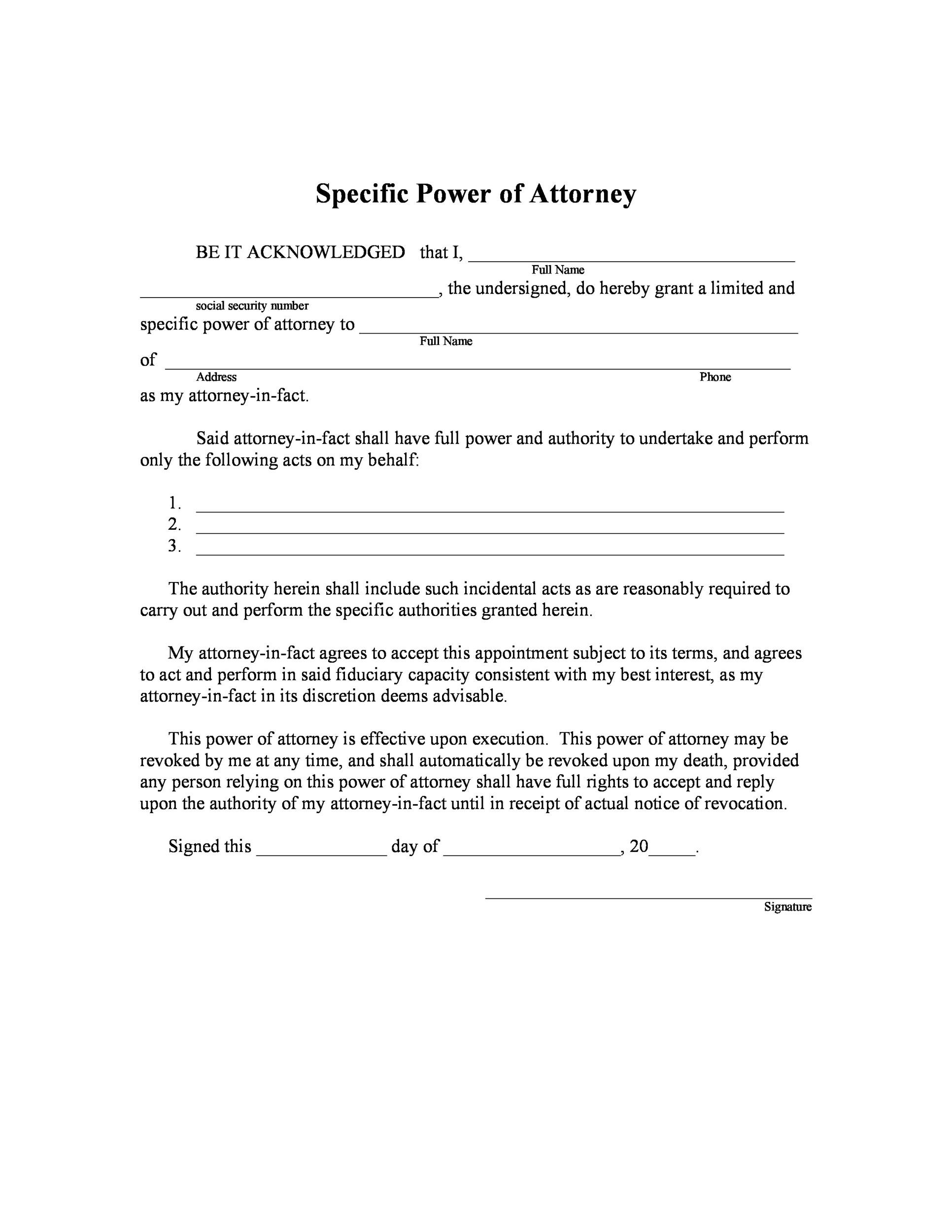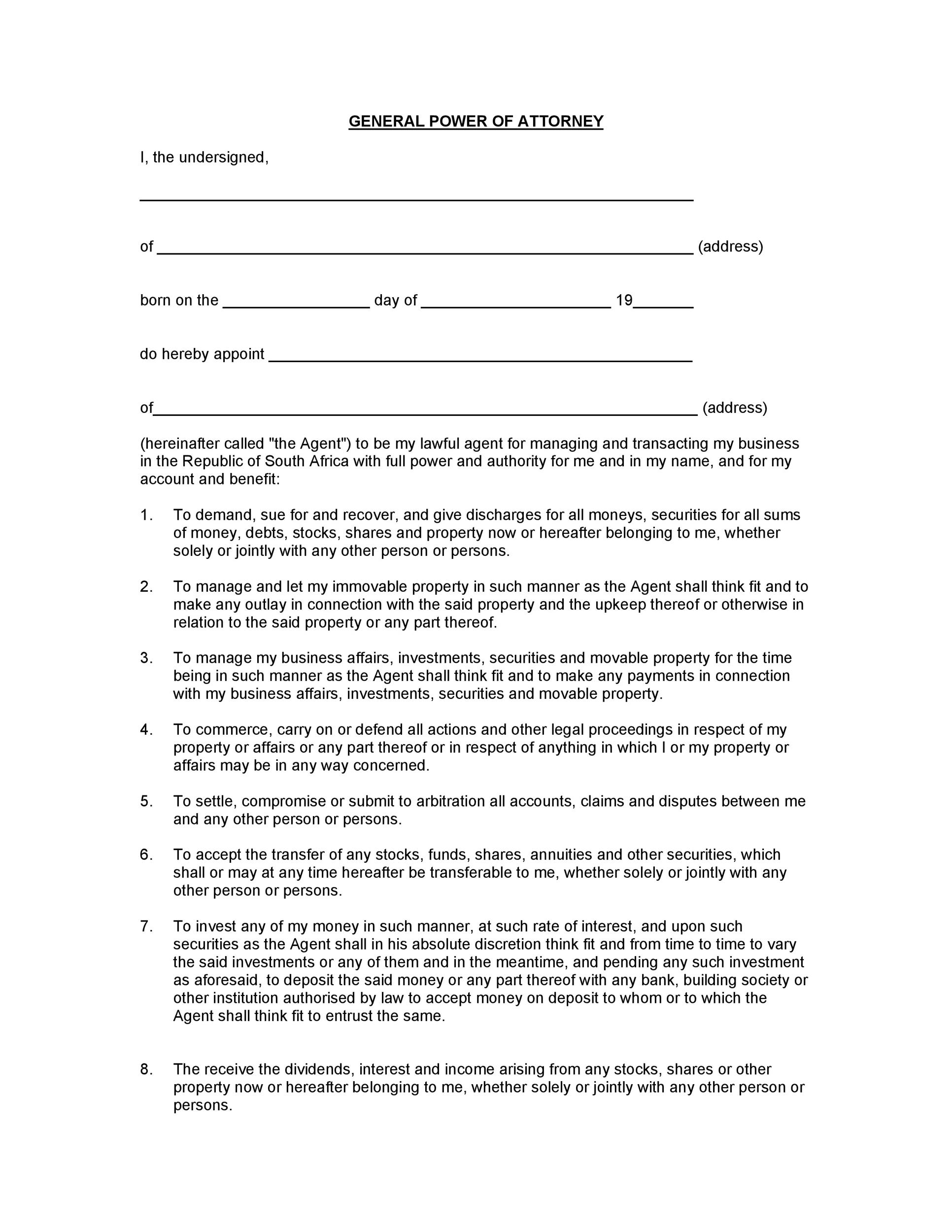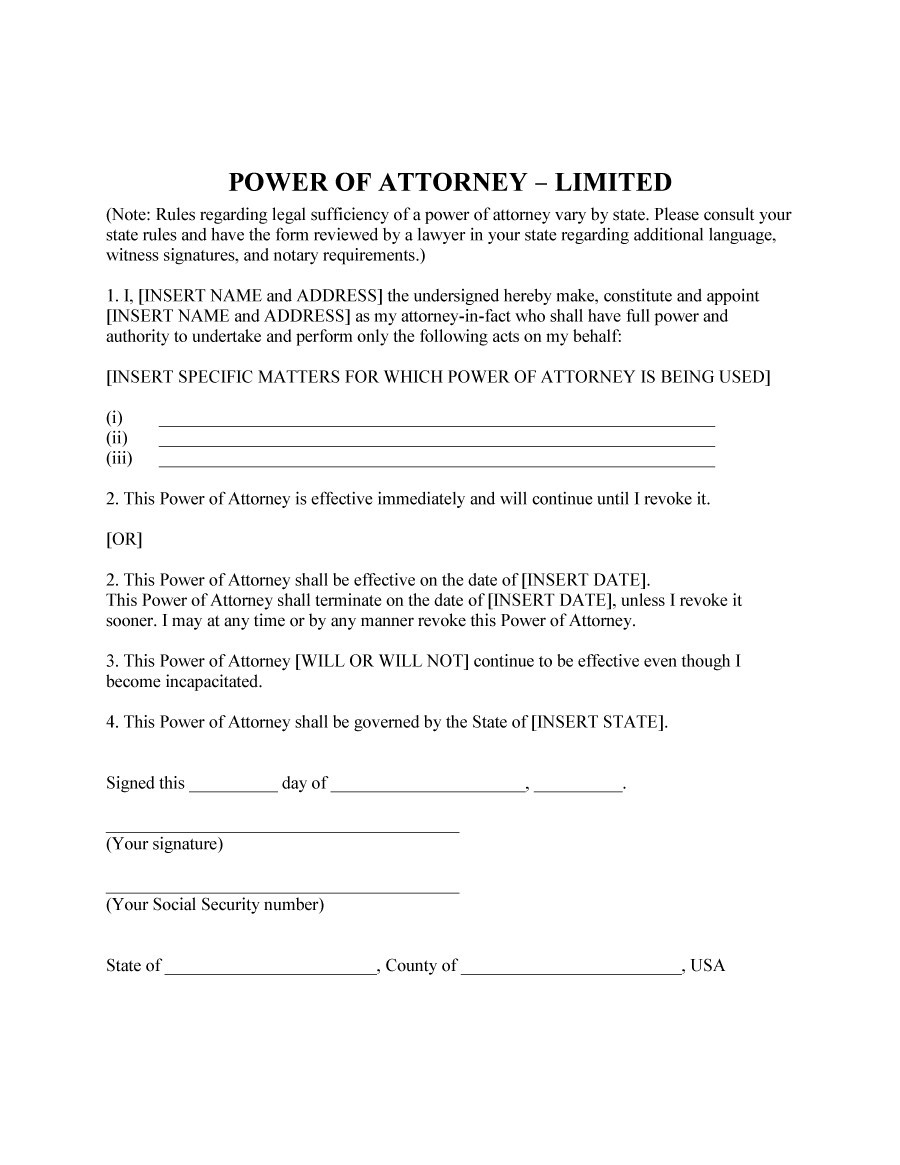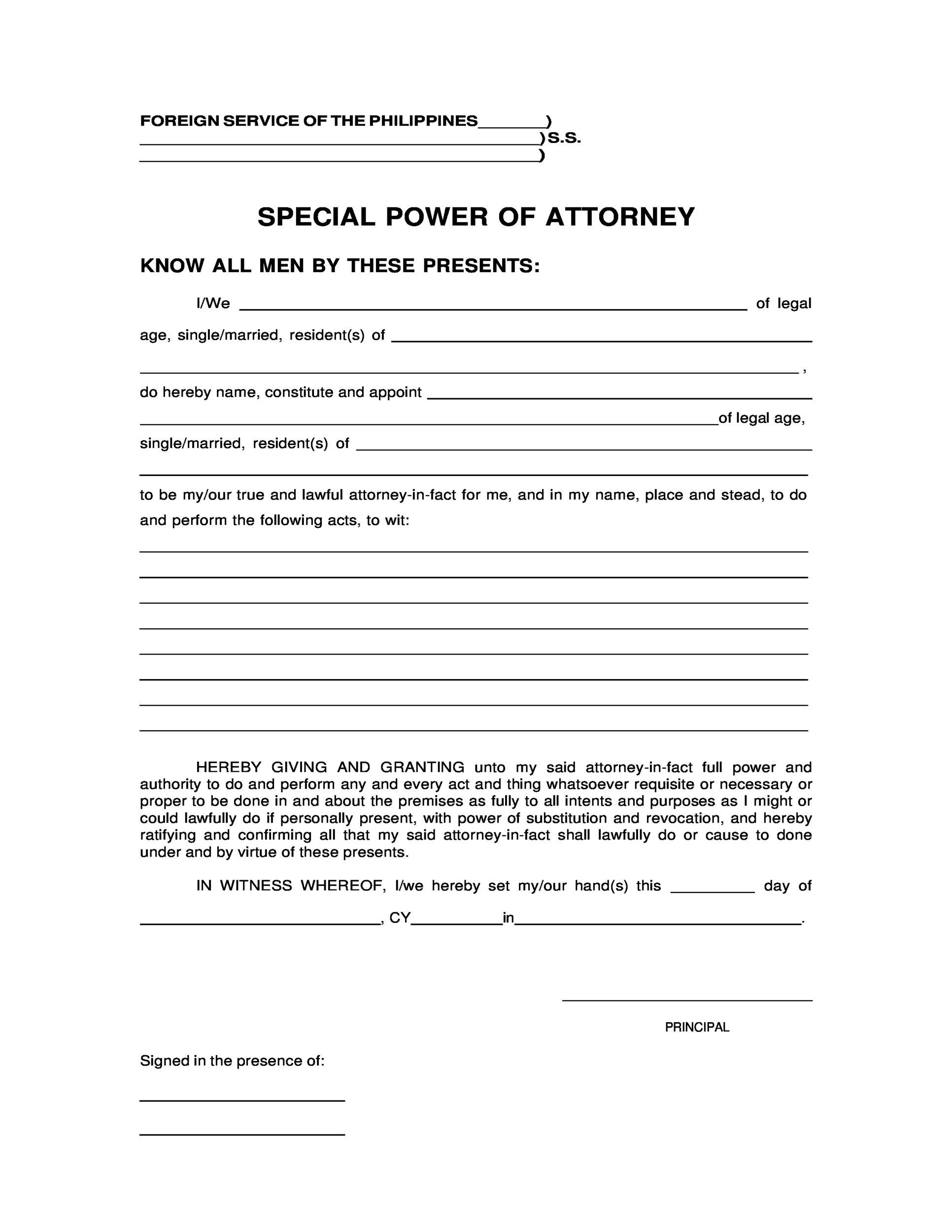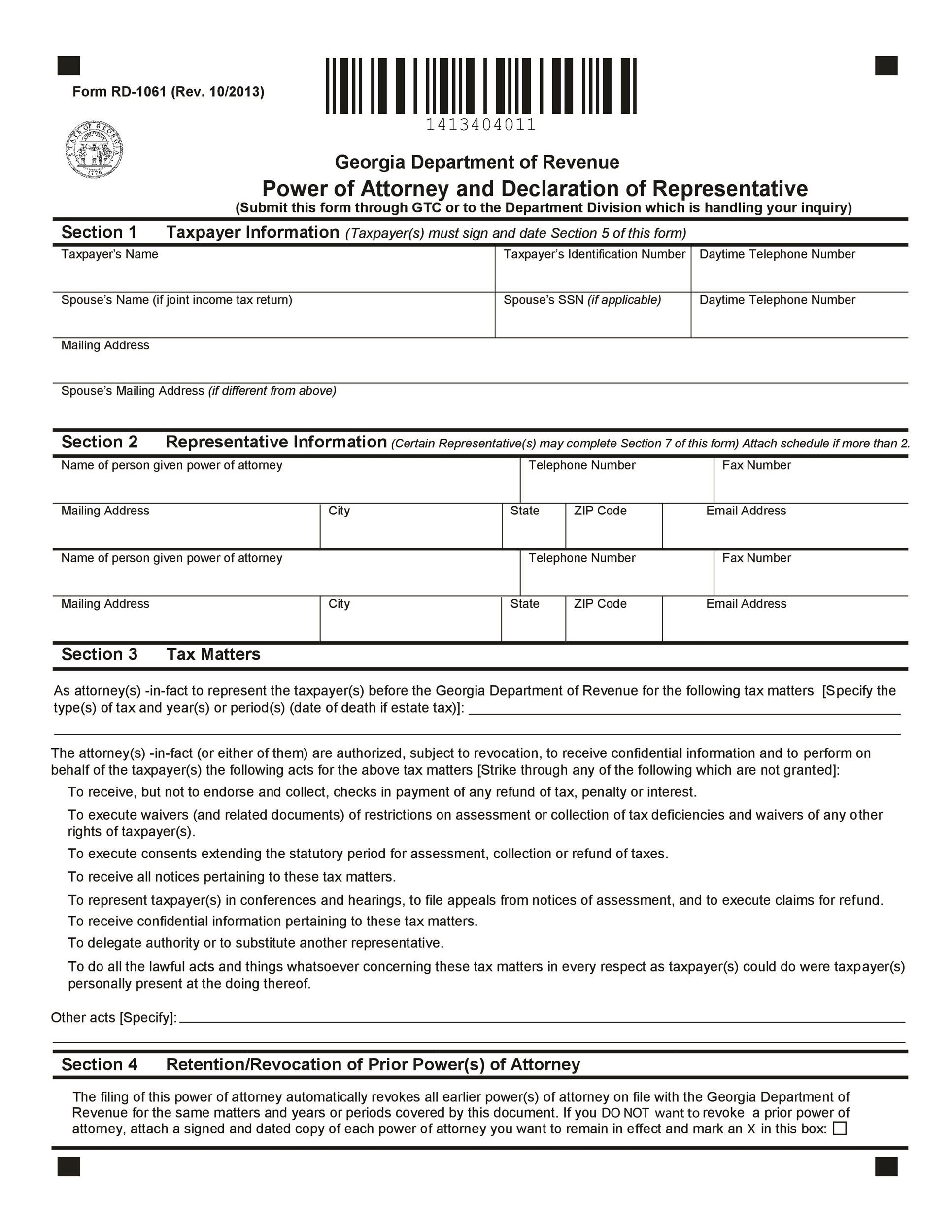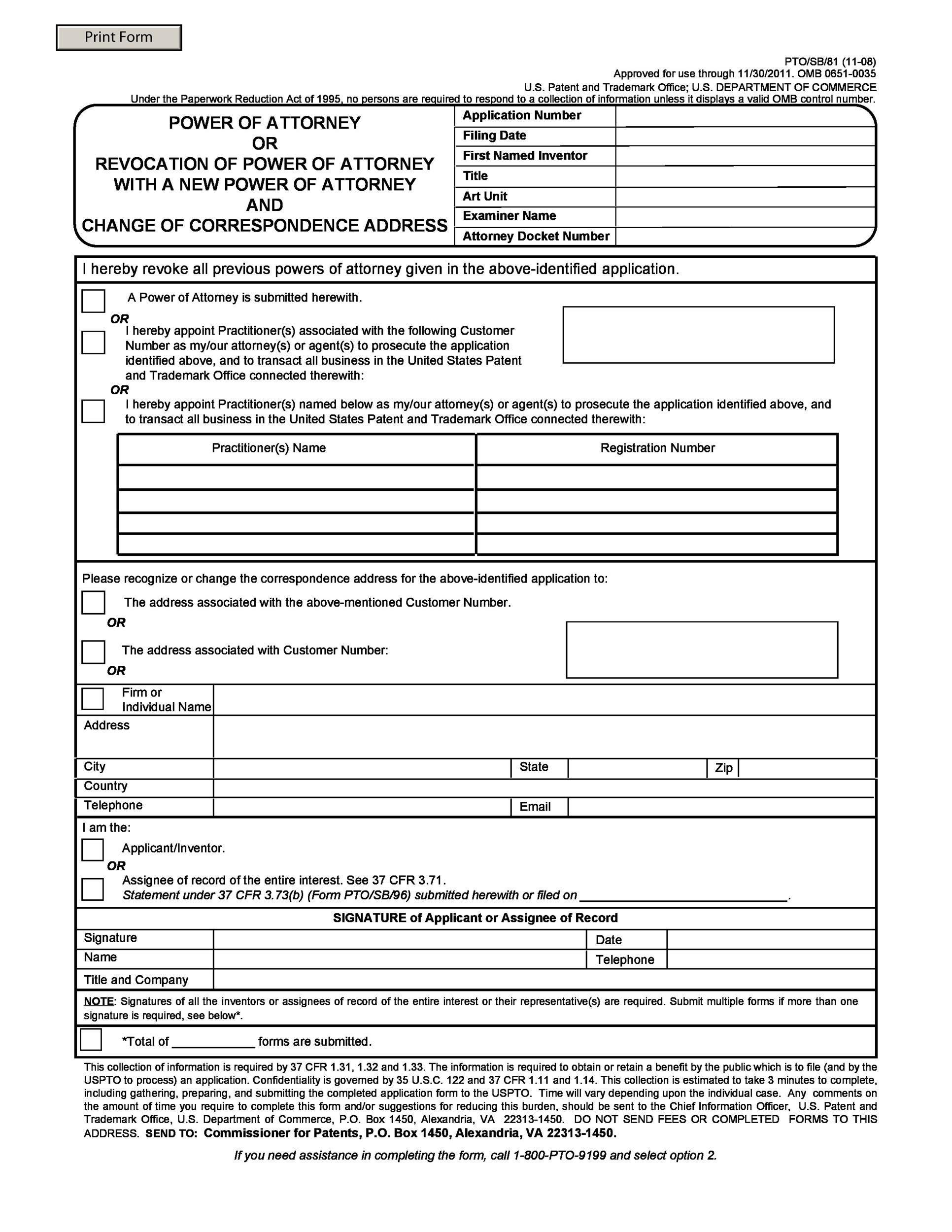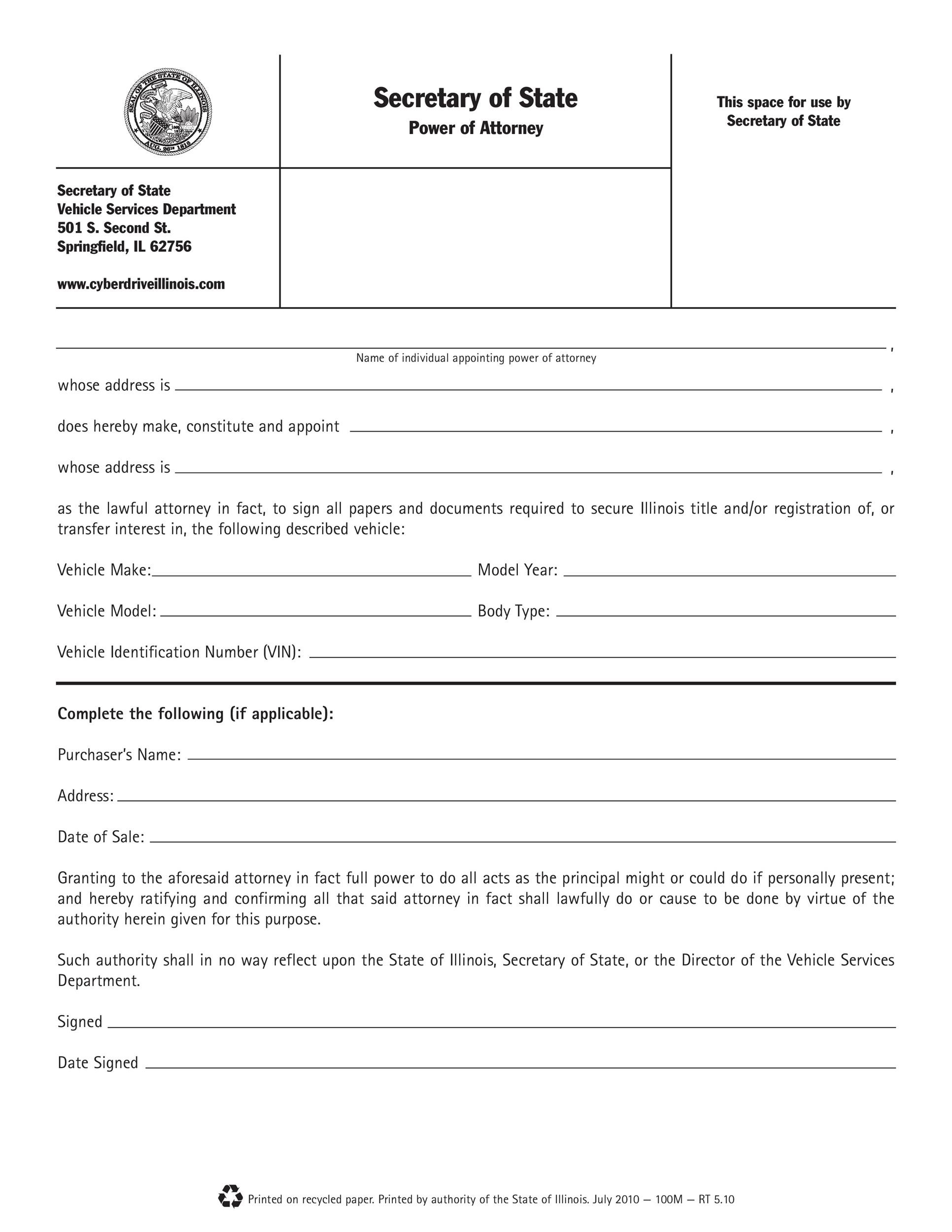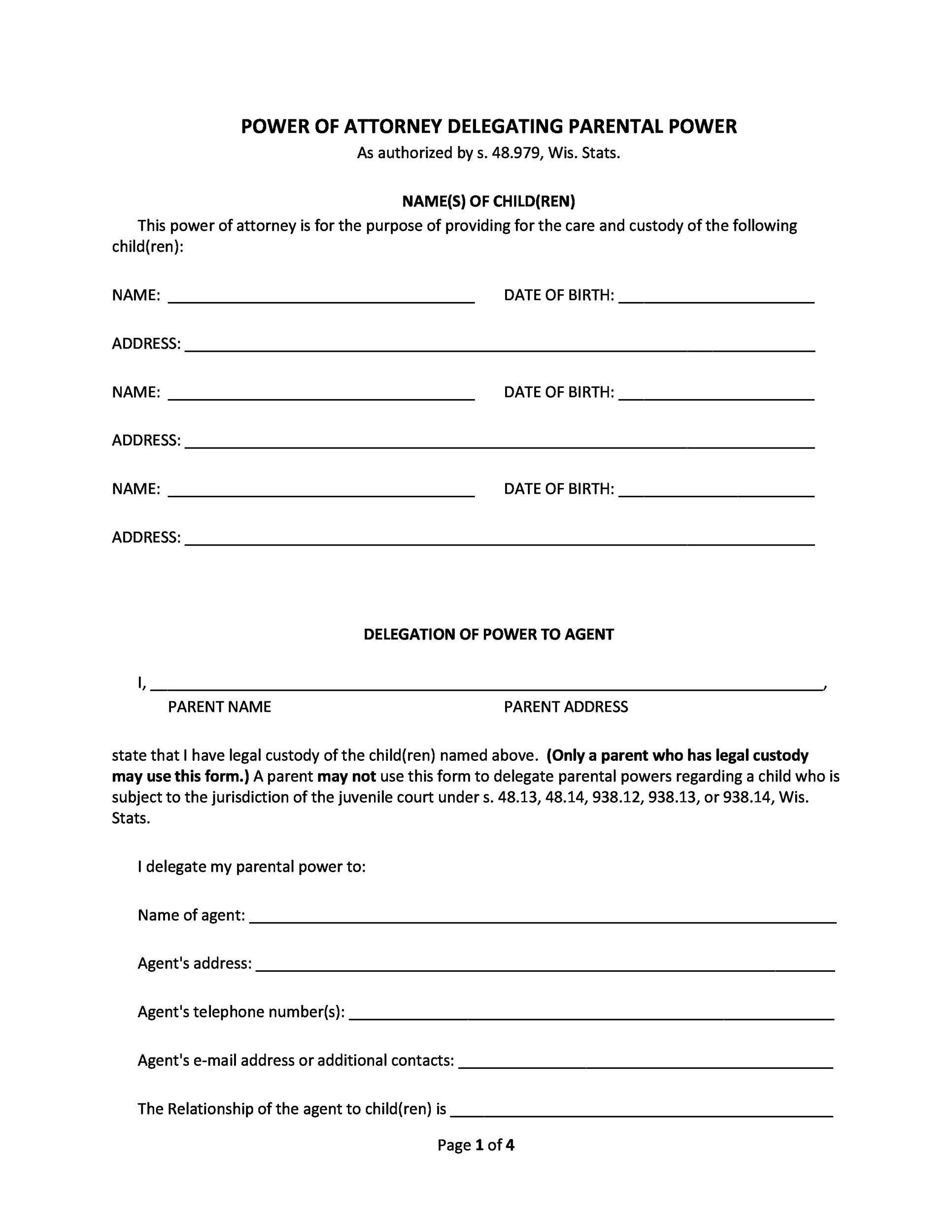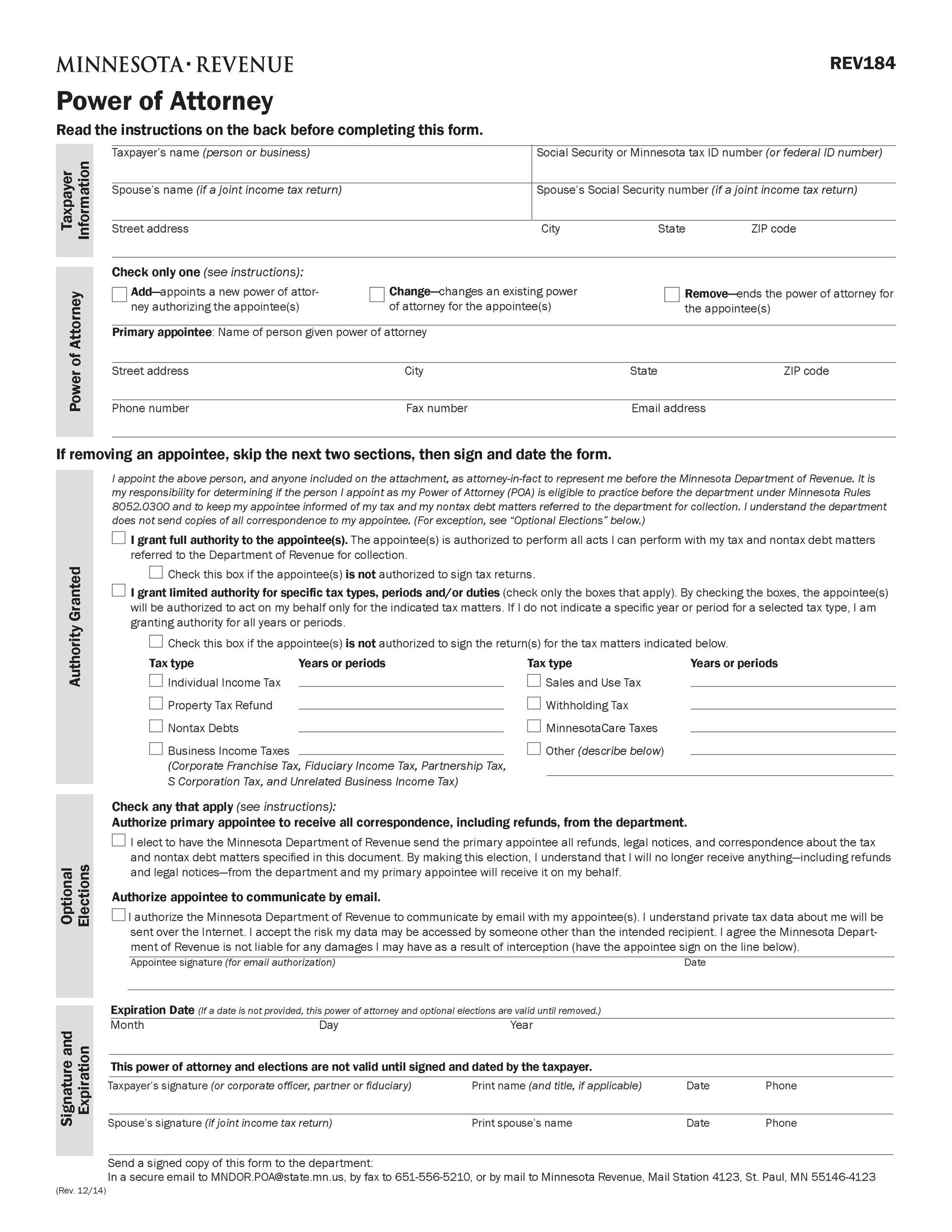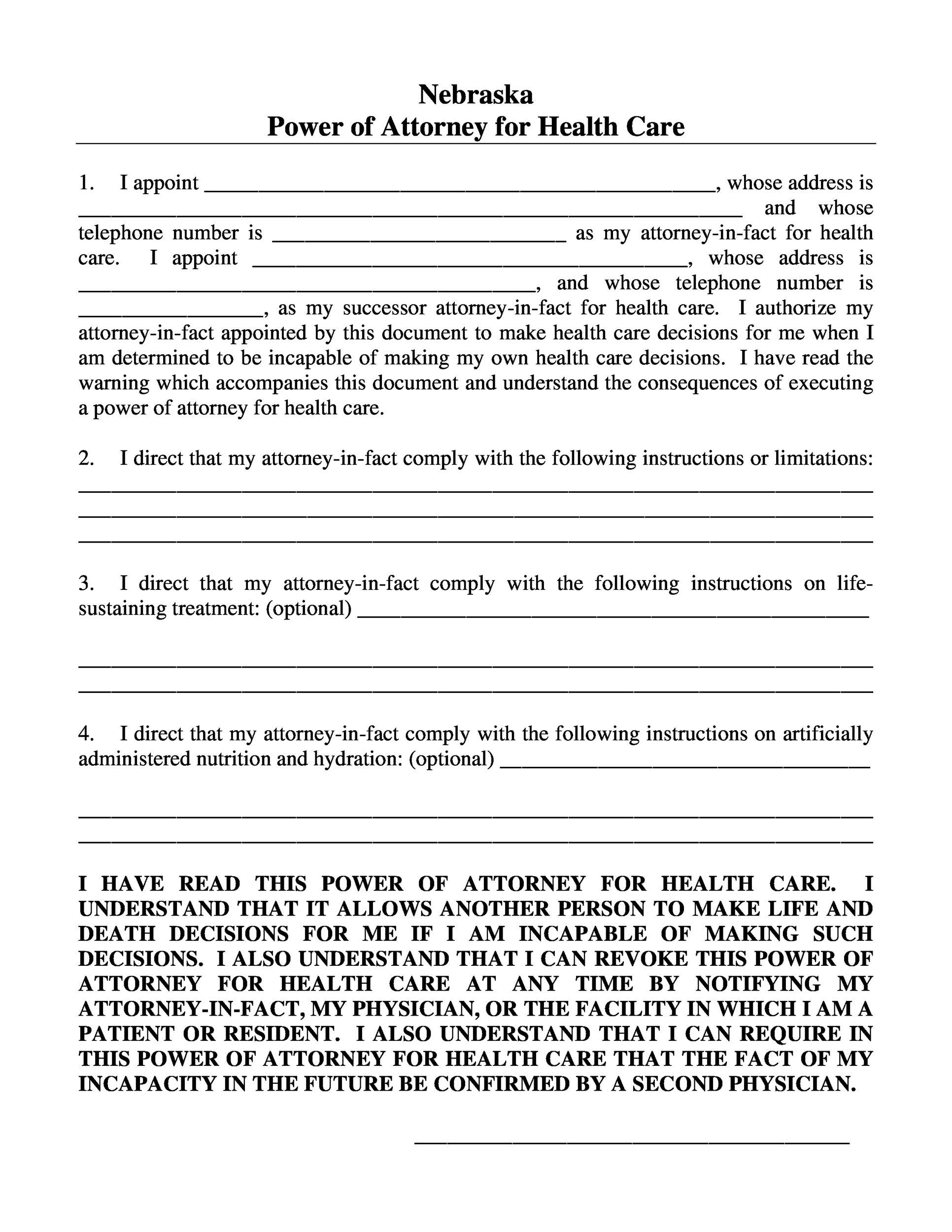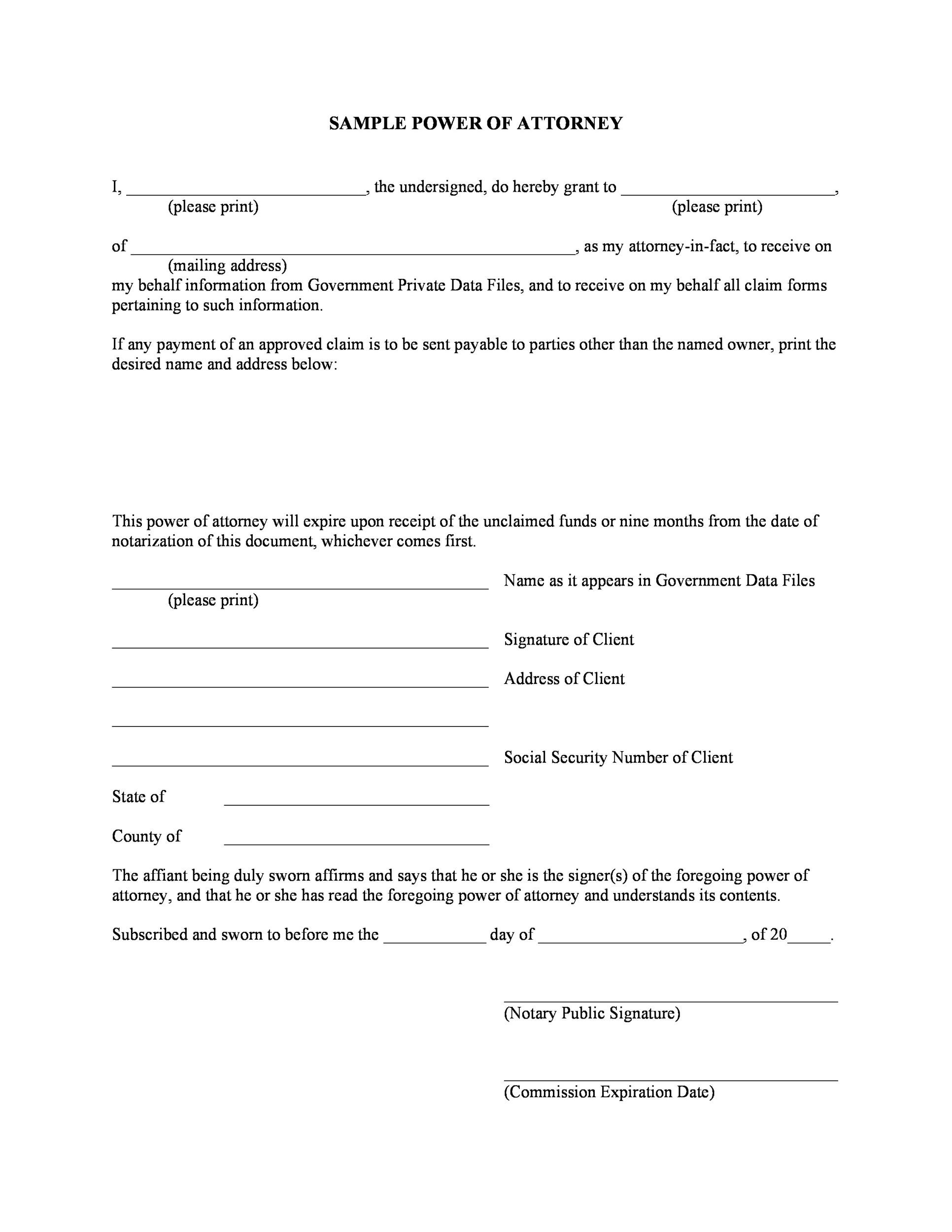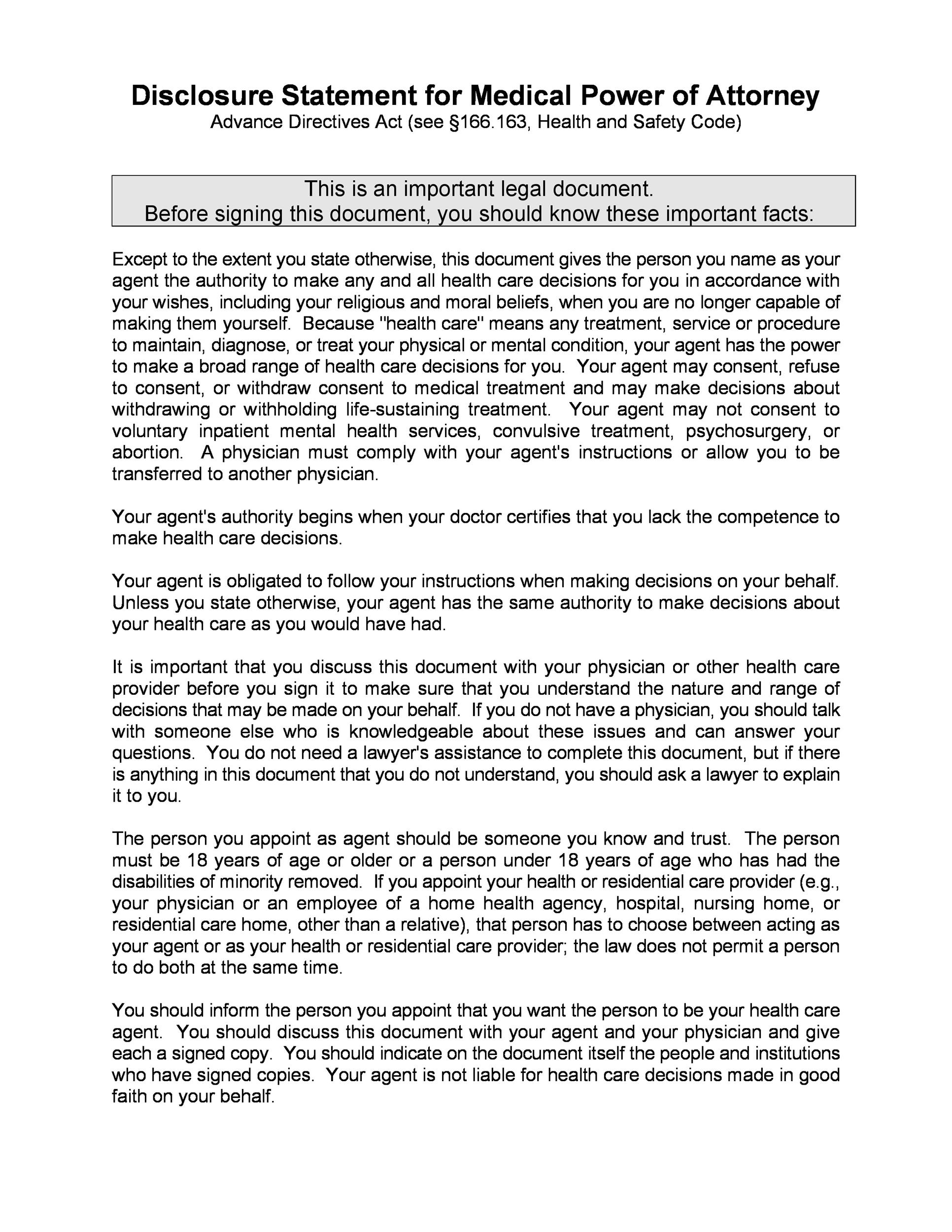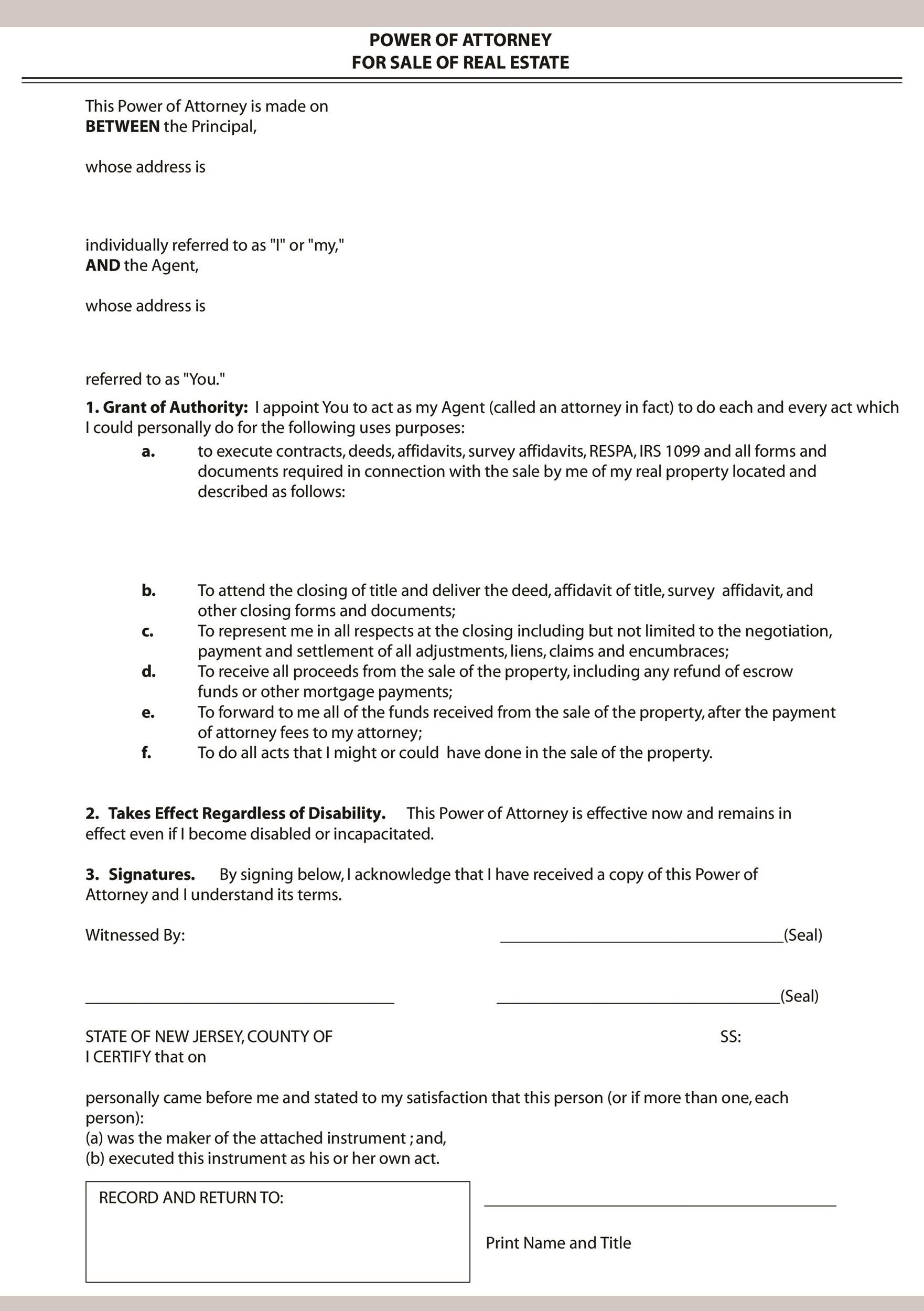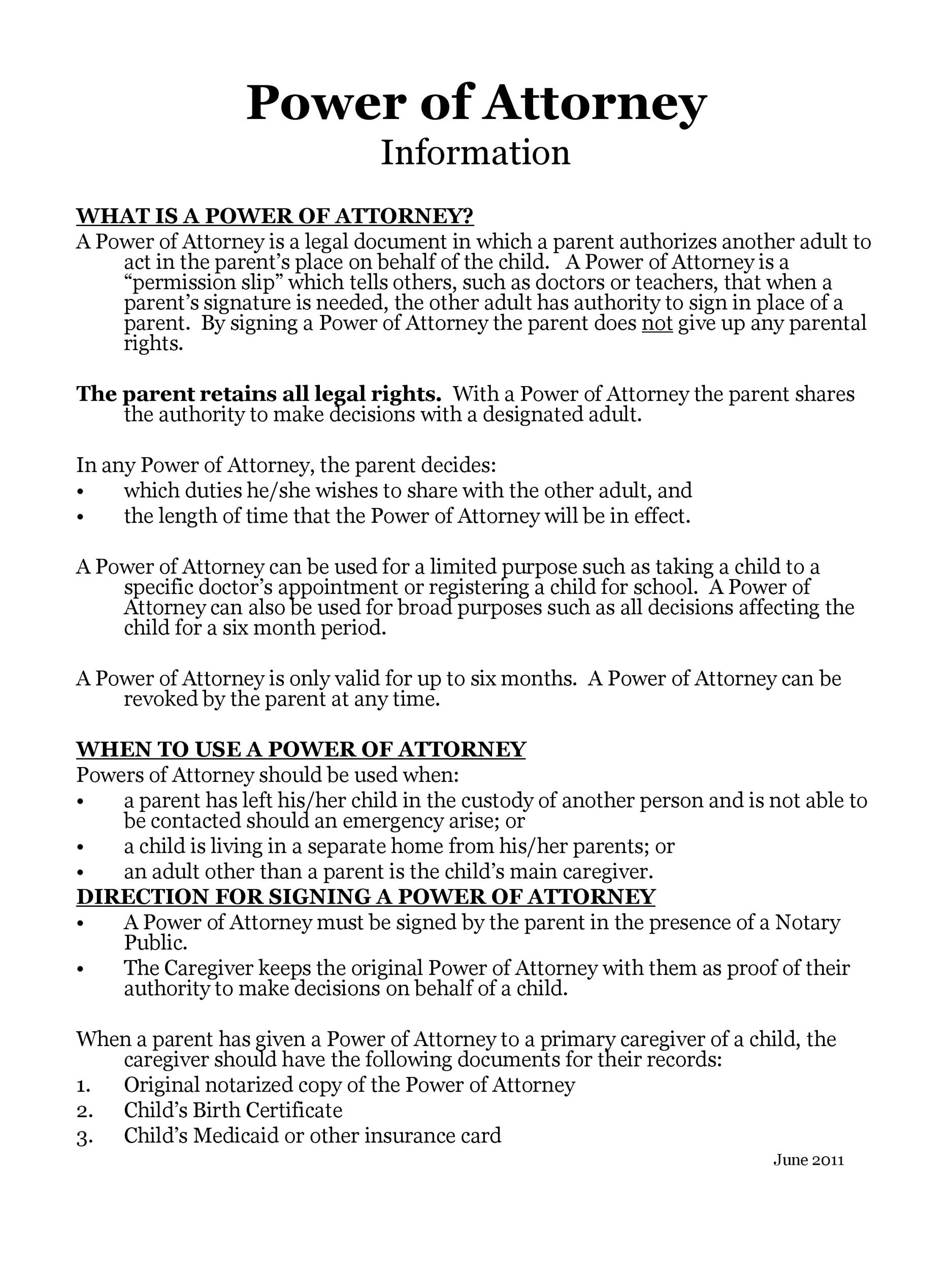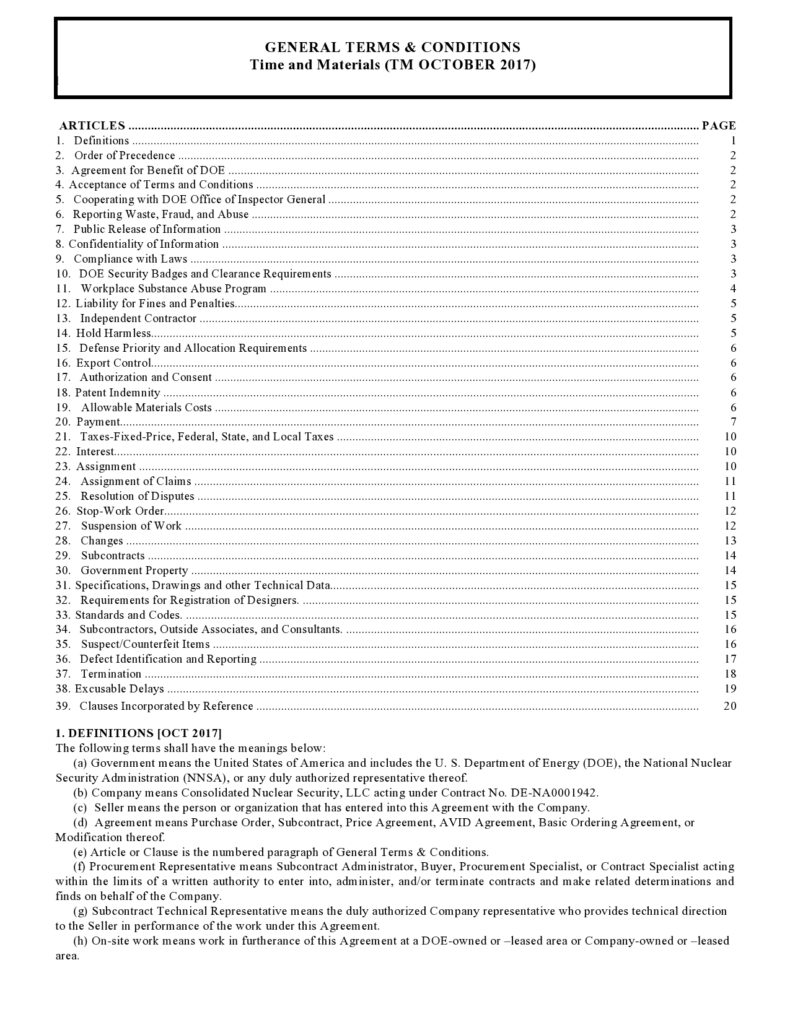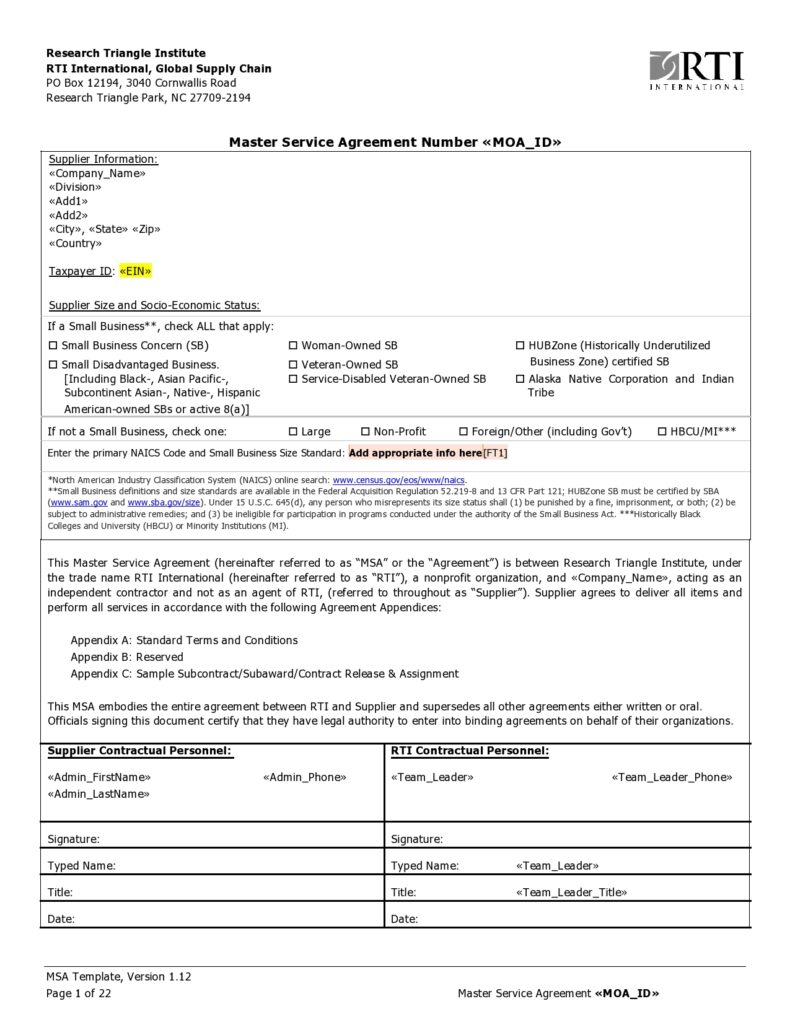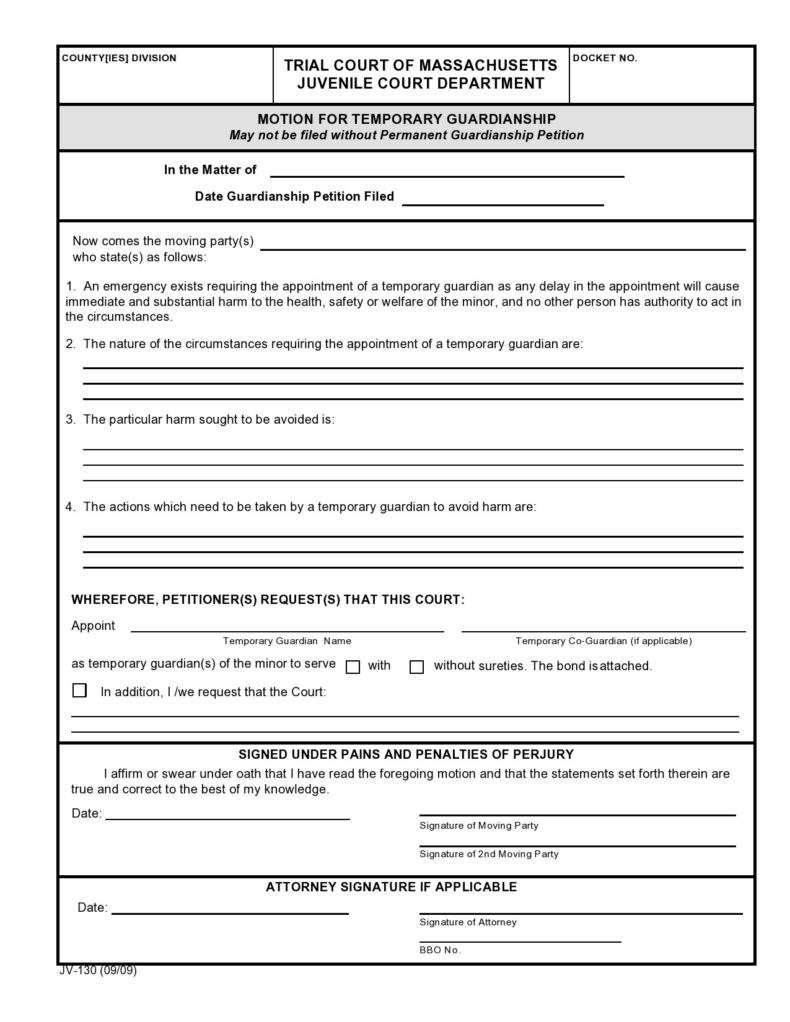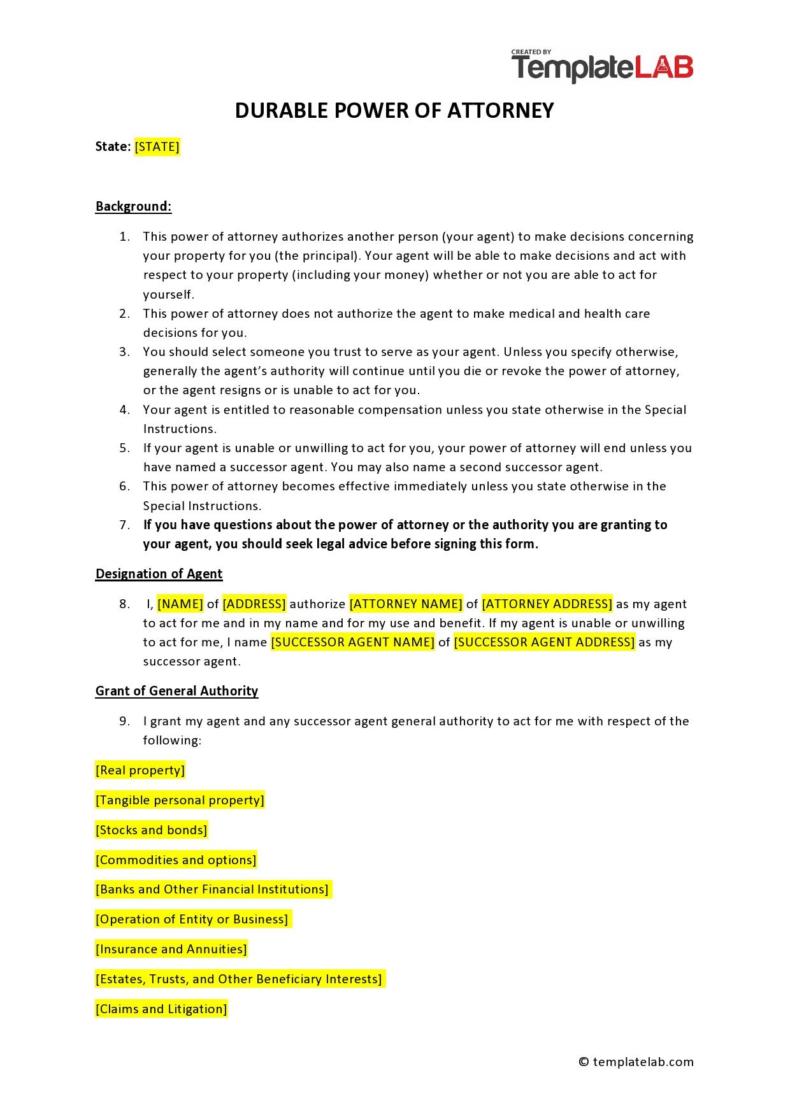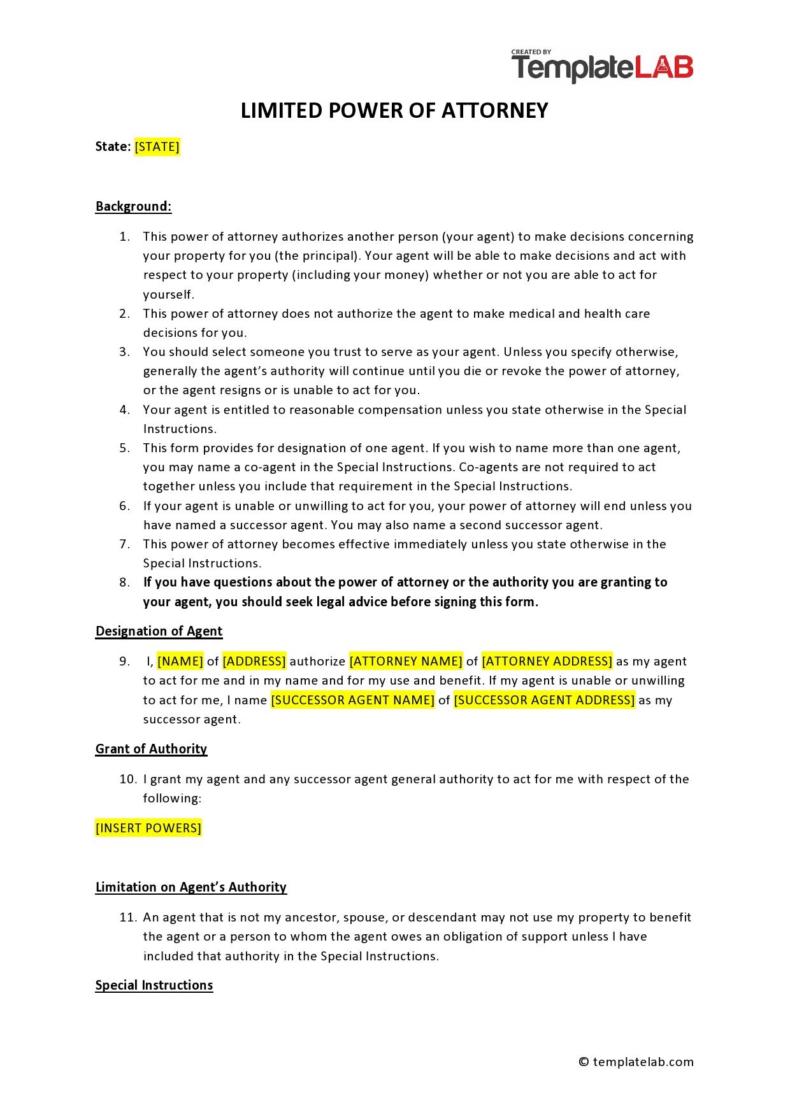A power of attorney can be a key document to protect your interests if something happens to you and you cannot take care of your own finances, your own business, or other actions that are outlined in the document. While the power of attorney template is not used to take care of your medical needs, this form can handle all of your other business and financial interests while you are away or incapacitated.
These forms can be designed to be in place for as long as you have allowed the document to be valid and have not replaced it with a new power of attorney, or they can be limited in nature and only apply for asset duration of time or in the instance that a specific event occurs. The second kind of power of attorney form is more commonly used for those who are only worried about emergency situations or who are going to be away for a short period of time, while the durable power of attorney is used for those whose situation is not expected to change.
Table of Contents
- 1 Power of Attorney Forms
- 2 What is a power of attorney?
- 3 Power of Attorney Templates
- 4 Who can override a power of attorney?
- 5 Where can I get a power of attorney form?
- 6 Power of Attorney Samples
- 7 How to write a power of attorney form
- 8 Power of Attorney Examples
- 9 Can I revoke a power of attorney?
- 10 Power of Attorney Documents Are Key to Caring for Finances in Certain Situations
Power of Attorney Forms
By State
What is a power of attorney?
A power of attorney letter or power of attorney document is a legal document that allows you to appoint someone whom you trust to be your agent or to act as your attorney-in-fact to take care of your affairs if you cannot do so for some reason. You are called “the principal” when referring to this document, and you will determine what the “agent” can do for you.
The most common things that might be covered by a POA form are:
- Depositing checks or other money to bank accounts
- Selling property
- Filing taxes
- Managing business processes
There are various other reasons that you might need to complete power of attorney paperwork, but these are the most common reasons for creating this document. Elderly people, as well as people who are going to be leaving the state or the country, commonly create this document to protect their finances and business needs while they are away or in the case that they can no longer take care of these actions on their own.
This form is not created to be used for healthcare decisions, and there is a different power of attorney form that is used to handle medical care needs and to appoint an agent for this kind of care. Often, people who are older will have both of these kinds of forms made and ready to be used should the need arise.
Power of Attorney Templates
Who can override a power of attorney?
When the principal is still of sound mind, they are the primary person who has the right to override the POA. There are limited circumstances, usually related to a medical POA that is in place or estate planning specifics, where a POA might be overridden. This is still technically an action that is taken on behalf of the principal, however, even if these other documents have to do the talking for them at the time.
There are very few instances where a POA can be overridden by anyone other than the principal, and this might only take place if the form is found to be invalid in some way. Not completing the right signatures, not securing a notary, or forgetting to add specific details to the document can lead to the POA being invalid. This is an outcome that no one wants to experience, and you will need to be sure that your POA form is correctly completed or drafted so that you can count on its usefulness if a situation should arrive where it is needed.
Where can I get a power of attorney form?
The power of attorney sample or form that you have been looking for might be found online. This is an easy way to create a very general POA form that you can use to cover a specific need. However, this kind of generic template form might not be ideal for your situation. After all, you might have very specific needs you are trying to meet while you are away or in the instance that you cannot take care of your own needs for some reason. When you use a general form, these specifics might not be covered.
These are the places where you can get a ready-made power of attorney form to use for this purpose:
- State government offices or websites
- A form builder online
- Have a lawyer make one for you
- Pick one up at the bank
Having a lawyer draft this form for you is often the best course of action, particularly if you have complex things that need to be done for you should you be unable to take care of them alone. This is one of the main aspects of estate planning in most cases as well, so your lawyer might just take care of your POA documents for you during the estate planning process.
Always make sure that you have thought carefully about who you want to name as your POA. There are many reasons that this person needs to be a trusted individual and you should not feel limited to naming family for this task either. Your friends, work acquaintances, and anyone else whom you trust can all be your POA, so make sure that you think about who you want to take on this role with some care.
Power of Attorney Samples
How to write a power of attorney form
1. Designate an Agent
This is the most important decision that goes into the POA process. The person who you select to be your agent on your POA will have full access to your finances in most cases, and they might also be granted the right to make important business decisions on your behalf. They can also buy and sell the property and other items unless this authority is expressly denied in the POA document.
You do not have to select someone to whom you are related when assigning an agent. You can pick anyone that you think is qualified for the job and who you feel comfortable trusting with this important task. Make sure that you think about this long and hard before you take this action. Also, remember that you can replace your POA document with a new one if the relationship between you and your original named agent suffers in some way or changes.
2. Grant Authority
This part of the document will indicate which kinds of actions can be taken by your agent. A basic printed form will just make a list of the things that can be done by the agent and you will simply check off the items on the list to indicate which of these things are allowed. You can do the same with your own form to make things easier. A standard list of considerations would include authority over:
- Real property
- Tangible personal property
- Stocks and bonds
- Commodities and options
- Banks and other financial institutions
- Operation of entities or businesses
- Insurance and annuities
- Estates, trust, and beneficiary interests
- Claims or litigation
- Personal and family maintenance
- Benefits from government programs or civil and military service
- Retirement plans
- Taxes
You will need to select which of these things you want to allow your agent to take care of for you if you should be unable to make choices on your own or in the case that you should not be present to handle these items. Some people only allow a few of the items on this list to be cared for by the POA, but in most cases, the POA is allowed to take care of all of them.
Specific authority can also be granted for items on this list which means that the agent cannot handle these items unless they are indicated in the POA. These are things that are never assumed to be allowed and must be called out specifically by you for the agent to be able to take action on them.
- Create, amend, revoke, or terminate an inter vivos trust
- Make a gift
- Create/change rights of survivorship
- Create/change beneficiary designations
- Authorize any other person to exercise authority that has been granted under the power of attorney
- Waive a principal’s right to be considered a beneficiary of joint or survivor annuities. This includes a survivor benefit that might be named under a retirement plan
- Use fiduciary powers that the principal has otherwise had the authority to delegate
You can also add a limited or special instructions section to cover anything else that you feel needs to be taken care of if you are absent or incapacitated.
3. Decide on the Duration
The duration of your power of attorney can have a big impact on its use. Technically, a basic POA is active only if the principal is not present or a triggering event has caused the document to become active. This can be a medical situation, an absence in another country, or some other event that you have indicated will cause the POA to become active.
The POA can also be set up to last a specific duration of time while you are away and then terminate on a predetermined date. This might be the best solution if you are going to be away or out of the country for a specific period of time and you want someone to take care of things at home for you during that period.
If you are not creating a durable power of attorney that is always in effect, you need to nominate guardians in advance for minor children if you should be unable to care for them or if you should become incapacitated. This is not necessary if the form that you have created is durable.
4. Signature
You, as the principal, will sign the document and date it. You will either have to have two witnesses or a notary present to witness the signing of the document. You will need to check what your state’s regulations and requirements are about these documents to find out if you need a notary or not for your POA signing.
Power of Attorney Examples
Can I revoke a power of attorney?
Yes, the principal can revoke a power of attorney. You can simply create a new one to replace the current POA, which is most commonly done when a new POA needs to be named. If you do not want to have a POA in place to govern your finances and other needs for whatever reason, you can shred the document and all copies of it. However, if you have given copies of the document to your agent, you cannot end the POA just by shredding your documents.
You can also revoke a power of attorney by making sure that there are revocation clauses built into the document itself. This will be a clause that will indicate that should a specific circumstance or change occur, the document will no longer be in effect. This is a good idea if you want to be sure that your POA will only be used in very specific situations, and the revocation clause has to be followed by the agent in these cases.
Power of Attorney Documents Are Key to Caring for Finances in Certain Situations
If you are going to be out of the country or you have a medical condition that you think could incapacitate you, you might want to create this form. If you are dealing with a long-term condition that makes it hard to manage your finances and businesses, you might also want to have this form in hand to make sure that your agent can help you to take care of things that you otherwise would not be able to handle.
This is very useful in a wide array of circumstances, and it can mean the difference between being supported when you cannot take care of your own needs and being unable to take care of necessary processes when you are not able to handle them yourself. POA documents can make a big impact on your situation overall, and this form can be very useful for any adult to have in place to protect their finances.

